Faculty Biographies
Chairs
Lipika Goyal, MD
Associate Professor
Stanford School of Medicine
Stanford, CA
Scott Kopetz, MD, PhD, FACP Professor Department of Gastrointestinal (GI) Medical Oncology Division of Cancer Medicine
The University of Texas MD Anderson Cancer Center
Houston, TX
Shubham Pant, MD, MBBS
Professor, Department of Gastrointestinal (GI) Medical Oncology Division of Cancer Medicine
The University of Texas MD Anderson Cancer Center
Houston, TX
Speakers
Maen Abdelrahim, MD, PhD, B Pharm Associate Professor of Medicine in Oncology Institute of Academic Medicine, Houston Methodist Hospital Houston, TX
Olatunji B. Alese, MD
Associate Professor, Department of Hematology and Medical Oncology Emory University School of Medicine Director of Gastrointestinal Oncology Winship Cancer Institute of Emory University Atlanta, GA
Najeeb Al Hallak, MD, MS
Associate Professor (Clinical),
School of Medicine Department of Oncology Division of Hematology Oncology (Primary)’
Detroit, MI
Lowell B. Anthony, MD, FACP
Professor, Clinical Title Series Division of Medical Oncology University of Kentucky Medical Centre
Lexington, KY
Junaid Arshad, MD, MS
Assistant Professor – Medical Oncology (Clinical Scholars Track) University of Arizona-College of Medicine
Tucson, AZ
Ali Azhdarinia, PhD
Associate Professor, IMM-Center for Translational Cancer Research
The University of Texas Health Science Center at Houston McGovern
Medical School
Houston, TX
Gregory Botta, MD, PhD
Associate Professor of Medicine
UC San Diego School of Medicine
San Diego, CA
Sakti Chakrabarti, MD
Clinical Associate Professor
Case Western Reserve University School of Medicine Senior Attending Physician, Medical Oncology UH Seidman Cancer Center
Cleveland, OH
Christopher Counter, PhD
George Barth Geller Distinguished Professor Department of Pharmacology & Cancer Biology Duke University Adjunct Professor Duke-NUS Medical School Associate Director of Basic Research, Duke Cancer Institute Durham, NC
Aman Chauhan, MD
Associate Professor of Medicine Director of Neuroendocrine Cancer Program Co-Director of Radiopharmaceutical Drug Development Program Sylvester Comprehensive Cancer Center University of Miami
Miami, FL
Sant P. Chawla, MD
Director Sarcoma Oncology Center Santa Monica, CA
Ana De Jesus-Acosta, MD
Associate Professor of Oncology
Sidney Kimmel Cancer Center of
Johns Hopkins Johns Hopkins Hospital Baltimore, MD
Haley Ellis, MD
Medical Oncologist Massachusetts General Hospital
Boston, MA
Hashem B. El-Serag, MD, MPH
Vice President – Learning Health System Margaret M. and Albert B. Alkek Professor and Chair, Department of Medicine Baylor College of Medicine Houston, TX
George A. Fisher Jr, MD, PhD
Professor Stanford University
Stanford, CA
Pierre M. Gholam, MD AGAF, FAASLD Professor of Medicine, Case Western Reserve University, School of Medicine Medical Director, Liver Center of Excellence, University Hospitals of Cleveland, Distinguished Attending Physician, UH Cleveland Medical Center, Director, Hepatobiliary Multidisciplinary Disease Team UH Seidman Cancer Center
Cleveland, OH
Tim F. Greten, MD
Deputy Director, Center for Cancer Research Deputy Branch Chief & Senior Investigator Thoracic and GI Malignancies Branch, Co-Director, NCI CCR Liver Cancer Program Center for Cancer Research,
National Cancer Institute
Bethesda, MD
Saurav Daniel Haldar, MD
Assistant Professor, Department of Gastrointestinal (GI) Medical Oncology The University of Texas
MD Anderson Cancer Center
Houston, TX
Aiwu Ruth He, MD, PhD
Associate Professor, Division of Hematology/Oncology
Department of Medicine School of Medicine Georgetown University Washington, DC
Gregory M. Heestand, MD
Clinical Associate Professor –
GI Oncology
Associate Fellowship Director – Hematology/Oncology
Stanford University
Stanford, CA
Aaron Hobbs, PhD
Assistant Professor, Department of Cell and Molecular Pharmacology & Experimental Therapeutics Medical University of South Carolina
Charleston, SC
Howard S. Hochster, MD, FACP
CINJ Associate Director, Clinical Research, Director Clinical Oncology Research, RWJ-B Health System Rutgers Cancer Institute
New Brunswick, NJ
Brandon Huffman, MD
Clinical Investigator, Hale Family Center For Pancreatic Cancer Research Department of Medical Oncology, Dana-Farber Cancer Institute Instructor in Medicine, Harvard Medical School Boston, MA
Yixing Jiang, BM, PhD
Professor of Medicine Director, GI Medical Oncology Marlene and Stewart Greenebaum Cancer Center University of Maryland School of Medicine Baltimore, MD
Suneel Kamath, MD
Assistant Professor of Medicine Cleveland Clinic Lerner College of Medicine
Case Western Reserve University Cleveland, OH
Fay Kastrinos, MD, MPH
Associate Professor of Medicine Division of Digestive and Liver Diseases Director, Gastrointestinal Cancer Risk and Prevention Program Director, Muzzi Mirza Pancreatic Cancer Prevention and Genetics Program Columbia University Irving Medical Center New York Presbyterian Hospital
New York, NY
Bryson W. Katona, MD, PhD
Assistant Professor of Medicine, Division of Gastroenterology and Hepatology University of Pennsylvania Philadelphia, PA
Nancy E. Kemeny, MD
Professor, Memorial Sloan Kettering Cancer Center
New York, NY
Alok Khorana, MD
Professor of Medicine, Cleveland Clinic Lerner College of Medicine of Case Western Reserve University, Director of the Gastrointestinal Cancers Program Taussig Cancer Institute,
Cleveland Clinic
Cleveland, OH
Moh’d Khushman, MD
Associate Professor of Medicine, GI Medical Oncologist, Division of Medical Oncology, Department of Medicine Washington University in St. Louis Siteman Cancer Center
St. Louis, MO
Richard Kim, MD
Professor Moffitt Cancer Center
Tampa, FL
Sudha Kodali, MD
Associate professor of Clinical Medicine Department of Medicine Division of Gastroenterology, Hepatology Section Houston Methodist Hospital
Houston, TX
Smitha Krishnamurthi, MD
Associate Professor, Department of Medicine Division of Hematology and Oncology School of Medicine Member Developmental Therapeutics Program Case Comprehensive Cancer Center Cleveland Clinic
Cleveland, OH
Sunyoung S. Lee, MD, PhD
Assistant Professor, Department of Gastrointestinal (GI) Medical Oncology The University of Texas
MD Anderson Cancer Center
Houston, TX
Daneng Li, MD
Associate Professor
Co-Director City of Hope Liver Cancer Collaborative
Co-Director Neuroendocrine Tumor Program Department of Medical Oncology & Therapeutics Research
City of Hope
Duarte, CA
Ethan B. Ludmir, MD
Assistant Professor, Department of Gastrointestinal Radiation Oncology Division of Radiation Oncology The University of Texas MD Anderson Cancer Center
Houston, TX
Amit Mahipal, MBBS, MPH
Professor Case Western Reserve University GI Oncology Program Leader, UH SEIDMAN CANCER CENTER
Cleveland, OH
Anirban Maitra, M.B.B.S.
Professor of Pathology & Translational Molecular Pathology, Sheikh Khalifa
Bin Zayed Al Nahyan Distinguished University, Chair in Cancer Research,
Scientific Director, Sheikh Ahmed Center for Pancreatic Cancer Research
The University of Texas MD Anderson Cancer Center
Houston, TX
Gulam A. Manji, MD
Director of Pancreas Medical Oncology Assistant Professor, Division of Hematology and Oncology Columbia University-New York Presbyterian Hospital
New York, NY
Boris Naraev, MD, PhD, FACP
Gastrointestinal, Neuroendocrine and Endocrine Medical Oncologist
Tampa General Hospital Cancer Institute, Associate Professor of Medicine, Division of Hematology and Medical Oncology, University of South Florida, Morsani College of Medicine Tampa, FL
Anne M. Noonan, MBBCh
Associate Professor
The Ohio State University
Columbus, OH
Paul E. Oberstein, MD
Director, Gastrointestinal Medical Oncology Program
NYU Langone Health
New York, NY
Michael J Overman, MD
Professor
The University of Texas MD Anderson Cancer Center
Houston, TX
Ravi Kumar Paluri, MD
Associate Professor GI Oncologist
Div. of Hematology-Oncology,
Dept. of Medicine Director, Phase 1 program The Atrium Health Wake Forest Baptist Winston-Salem, NC
New York, NY
Christine M. Parseghian, MD
Associate Professor, Department of Gastrointestinal (GI) Medical Oncology Division of Medicine, The University of Texas MD Anderson Cancer Center Houston, TX
Katrina Pedersen, MD
Associate Professor of Medicine Division of Medical Oncology,
Mayo Clinic
Rochester, MN
Eleonora Pelle, MD
Post Doctoral Researcher
Department of GI Oncology, Clinical Science Lab H. Lee Moffitt Cancer Center & Research Institute
Tampa, FL
Yoanna S Pumpalova, MD
Assistant Professor of Medicine
Medical Oncologist, Columbia University Irving Medical Center
New York, NY
Kanwal Raghav, MD, MBBS
Associate Professor, Gastrointestinal Medical Oncology Center Medical Director (CMD), Ambulatory Treatment Centers The University of Texas MD Anderson Cancer Center
Houston, TX
Lakshmi Rajdev, MD, MS
Professor of Medicine (Hematology and Medical Oncology) Icahn School of Medicine at Mount Sinai
New York, NY
Vaibhav Sahai, MBBS, MS
Clinical Associate Professor, Department of Internal Medicine University of Michigan Medical School
Ann Arbor, MI
John Paul Y.C. Shen, MD
Assistant Professor, Department of Gastrointestinal Medical Oncology
The University of Texas MD Anderson Cancer Center
Houston, TX
Benjamin L. Schlechter, MD
Senior Physician, Instructor in Medicine Harvard Medical School
Attending Physician, Medical Oncology Dana-Farber Cancer Institute
Boston, MA
Manish A. Shah, MD
Director, Gastrointestinal Oncology Program Weill Cornell Medicine
Chief, Solid Tumor Service Co-Director, Center for Advanced Digestive Disease New York-Presbyterian
New York, NY
Shagufta Shaheen, MD
Clinical Assistant Professor, Department of Medicine, Division of Oncology Stanford University
Stanford, CA
Kirti Shetty, MD
Professor of Medicine, Director, Hepatology, Medical Director, Liver Transplantation Program Director, Transplant Hepatology, Fellowship University of Maryland Medical Center Baltimore, MD
Amit Singal, MD, MS
Professor Department of Internal Medicine, Division of Digestive and Liver Diseases
University of Texas Southwestern Medical Center
Dallas, TX
Simron Singh, MD, MPH
Professor, Department of Medicine, University of Toronto Provincial Head, Person Centered Care, Cancer Care Ontario Medical Oncologist, Sunnybrook Odette Cancer Center/Susan Leslie Clinic for Neuroendocrine Cancers Scientist, Institute for Clinical Evaluative Sciences, Assistant Professor, Institute for Health Policy Management and Evaluation, Co-Founder, Commonwealth Neuroendocrine Tumour Collaboration
Ontario, Canada
Jonathan Strosberg, MD
Professor, Department of Oncologic Sciences, MDC 44 College of Medicine University of South Florida
Medical Director, GI Research Program President Emeritus North American Neuroendocrine Tumor Society
Moffitt Cancer Center
Tampa, FL
Nguyen H. Tran, MD
Assistant Professor of Oncology
Mayo Clinic
Rochester, MN
Zev A. Wainberg, MD
Professor of Medicine, Health Sciences Clinical Professor of Medicine and Surgery Division of Hematology-Oncology, David Geffen School of Medicine at UCLA
Santa Monica, CA
Kirk Wangensteen, MD, PhD
Associate Professor, Mayo Gastroenterology and Hepatology
Mayo Clinic
Rochester, MN
Benjamin Adam Weinberg, MD, FACP Associate Professor of Medicine Department of Medicine, Division of Hematology and Oncology, Lombardi Comprehensive Cancer Center (LCCC) Georgetown University Medical Center Washington, DC
Robert A. Wolff, MD
Professor Department of Gastrointestinal (GI) Medical Oncology Division of Cancer Medicine
The University of Texas MD Anderson Cancer Center
Houston, TX
Jennifer Wu, MD
Director, Bellevue Cancer Center Section Chief, Hematology Oncology Bellevue Medical Center, Associate Professor Of Medicine, NYU Langone Health
New York, NY
David B. Zhen, MD
Associate Professor Gastrointestinal Medical Oncology. Co-director, Neuroendocrine Tumor Program. Fred Hutchinson Cancer Center. University of Washington
Seattle, WA
Junior Faculty
Pamela Basto, MD, PhD Hematology/Oncology Fellow
Stanford University’
Stanford, CA
Ethan B. Ludmir, MD
Assistant Professor, Department of Gastrointestinal Radiation Oncology Division of Radiation Oncology Assistant Professor, Department of Biostatistics, Research Consultant, Department of Radiation Oncology - Research, Division of Radiation Oncology
The University of Texas
MD Anderson Cancer Center
Houston, TX
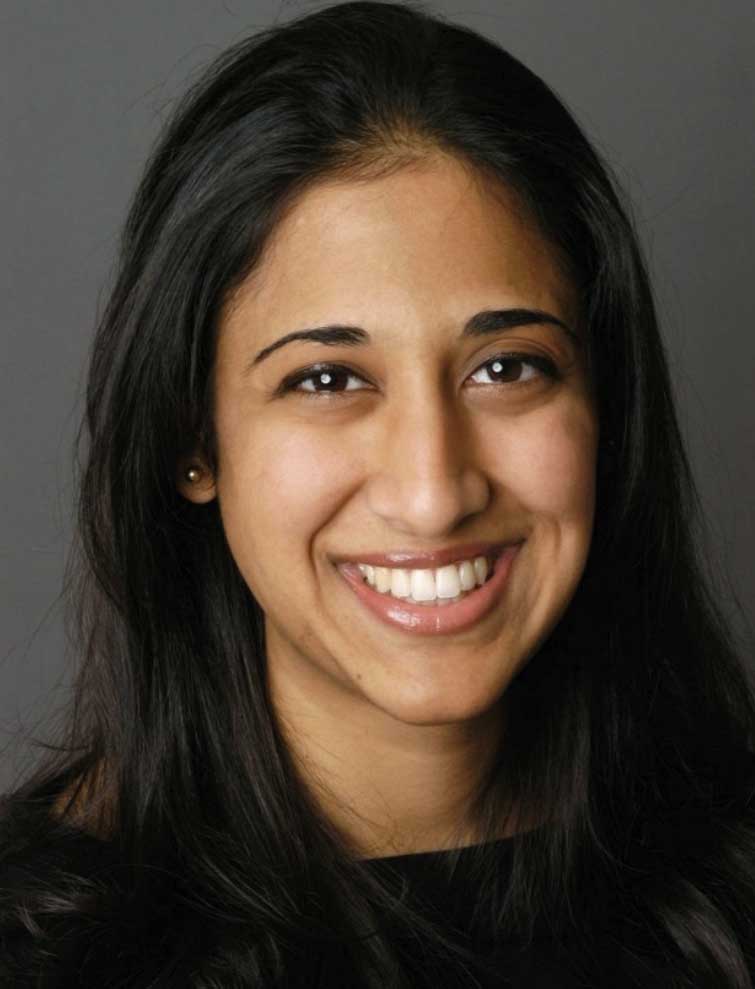
Lipika Goyal, MD (Chair)
Associate, Professor Stanford School of Medicine, Stanford, CA
Dr. Goyal is the Director of Gastrointestinal Oncology in the Stanford Cancer Institute and an Associate Professor in the Department of Medicine in the Stanford School of Medicine. Dr. Goyal completed her B.A. in the Biological Basis of Behavior at the University of Pennsylvania and then with the support of a Rhodes Scholarship, pursued a Master of Philosophy in Development Studies at the University of Oxford. She then pursued medical training at Harvard Medical School, the Brigham and Woman’s Hospital Internal Medicine Residency, and the Dana Farber/Harvard Cancer Center Hematology/Oncology Fellowship for her medical training. In 2013, she joined the faculty of the MGH Cancer Center as a medical oncologist in the Gastrointestinal Oncology group and later joined the Termeer Center for Target Therapy to pursue early phase drug development. In February 2023, she joined the faculty at Stanford. Dr. Goyal was awarded the American Cancer Society Researcher of the Year Award in 2022 for her work on FGFR resistance in cholangiocarcinoma. In collaboration with a team of researchers, she is studying mechanisms of intrinsic and acquired resistance to FGFR inhibitors and novel approaches to delaying and overcoming resistance. Her clinical and translational research efforts broadly focus on the development of effective biomarkers and therapies for cholangiocarcinoma and hepatocellular carcinoma, and she serves as the principle investigator for numerous clinical trials to provide access to novel therapeutics for her patients. She has served on the Hepatobiliary Cancers Panel of the National Comprehensive Cancer Network, the American Society of Clinical Oncology Education Committee, and the Steering Committee for National Cancer Institute Liver Cancer Moonshot Program. Her research is funded by grants from the National Institutes of Health, American Cancer Society, US Department of Defense, and the Cholangiocarcinoma Foundation.
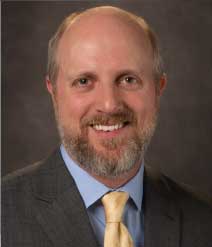
Scott Kopetz, MD, PhD, FACP (Chair)
Professor, Department of Gastrointestinal (GI) Medical Oncology, Division of Cancer Medicine, The University of Texas MD Anderson Cancer Center, Houston, TX
Dr. Kopetz joined MD Anderson Cancer Center and is Professor and Deputy Chair in the Department of Gastrointestinal Medical Oncology . In the Cancer Medicine division, he is Co-Director of Cancer Biology. Within the institution, he is contact PI of our Gastrointestinal SPORE, leader of our CCSG GI Program, a leader of our Colorectal Cancer Moon Shot, serving as the Medical Director of our TRACTION platform, and the Associate Vice President for Translational Integration. Dr. Kopetz is board-certified in internal medicine and in medical oncology. He has authored over 400 peer-reviewed articles in respected scientific journals such as New England Journal of Medicine, Journal of Clinical Oncology, Lancet, Lancet Oncology, JAMA, Cancer Discovery, and Nature Medicine. He is the principal investigator of several practice changing clinical trials, including trials for patients with BRAF mutated colorectal cancer that led to new standards of care. Dr. Kopetz leads the MD Anderson Gastrointestinal Cancer Center Program and is chair of the NCI Colon Cancer Task Force.
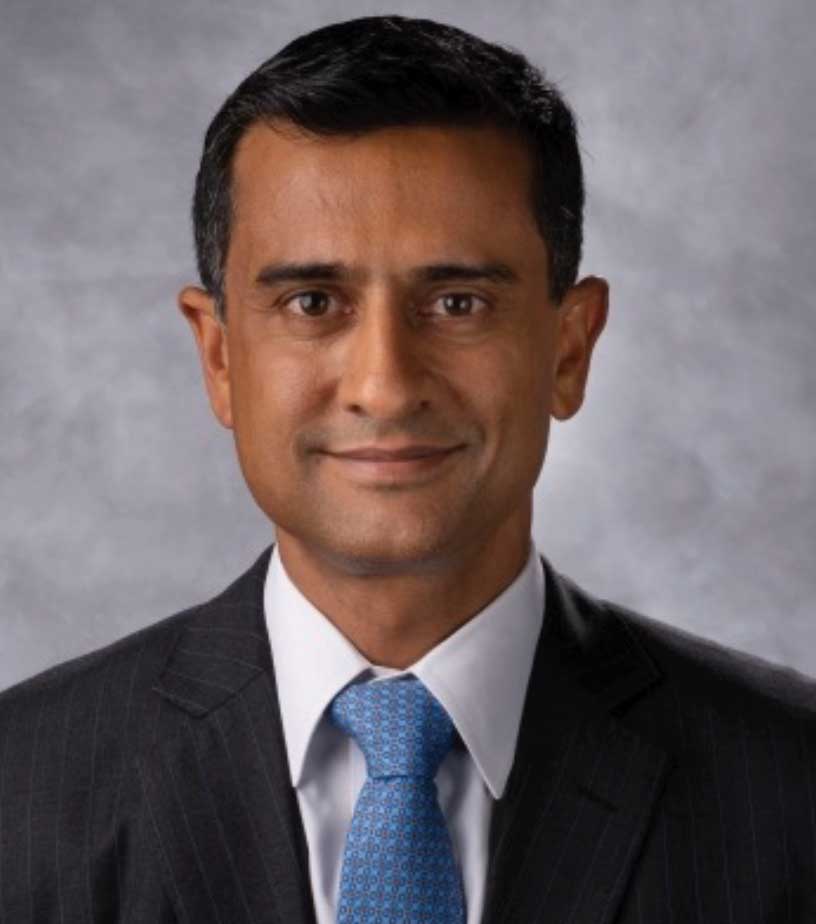
Shubham Pant, MD, MBBS (Chair)
Professor, Department of Gastrointestinal (GI) Medical Oncology, Division of Cancer Medicine, The University of Texas MD Anderson Cancer Center, Houston, TX
Dr. Shubham Pant is a Professor in the Department of Gastrointestinal (GI) Medical Oncology at The University of Texas MD Anderson Cancer Center. Dr. Pant earned an MD from Maulana Azad Medical College. Dr. Pant completed his fellowship from the James Cancer Hospital/Solove Research Institute at the Ohio State University where he was elected Chief Fellow. He has previously served as the Director of Clinical Trials, Section of Hematology- and as Associate Director of the TSET Phase I Program at the University of Oklahoma. He was recipient of the Mai Eager Anderson Endowed Chair in Cancer Clinical Trials, was featured in “40 under 40” in Oklahoma magazine and has been voted by his peers as “America’s Top Doctors” (Castle Connolly) five years in a row. Dr. Pant is a member of GI-ICT Liaison Group at The University of Texas MD Anderson Cancer Center. He has an expertise in Targeted therapy and Immunotherapy and has co-authored numerous peer-review articles and is a Section Editor for the Handbook of Targeted Therapy and Immunotherapy. Dr. Pant is a key opinion leader in the fields of Phase 1 (Early drug development) and GI Cancers including pancreatic, biliary, gall bladder and colorectal cancer. Nationally, he is a member of the Arm Selection Committee of Precision Promise, a Pancreatic Cancer Action Network (PanCan) initiative.

Maen Abdelrahim, MD, PhD, B Pharm
Associate Professor of Medicine in Oncology Institute of Academic Medicine, Houston Methodist Hospital Houston, TX
Dr. Abdelrahim completed pharmacy training followed by graduate work in the field of pharmacology and toxicology. Upon completion of his graduate work, clinical training as a medical oncologist fueled his motivation and expertise in the field of anticancer drug discovery. His translational research is focusing on the discovery and development of new anticancer drugs. He has identified for the first time a new structural class of compounds that can target selective transcription factor called Sp proteins. Transcription factors are now recognized as targets for the development of new anticancer drugs. Dr. Abdelrahim’s research has pinpointed few compounds that inhibit tumor growth and angiogenesis in-part by inducing proteasome-dependent degradation of selected Sp proteins in cancer cells and tumors. The lead compound of this class (Tolfenamic acid) has reached Phase I Clinical Trial to treat patients with advanced and metastatic pancreatic cancer in combination with gemcitabine and radiation therapy. Dr. Abdelrahim has a patent application submitted for the new use of these compounds in GI cancers. In prior research, he was the first to find that Sp4 protein is over expressed in GI cancers including pancreatic cancer and that the role of Sp4 can be equally important as Sp1 in some type of GI cancers. Researchers in cancer have the ultimate responsibility of taking their findings to the clinic which is described as translational research. By seeing GI cancer patients in his practice, collaborating with translational scientist in the lab and conducting and directing clinical trials, Dr. Abdelrahim hopes to continue to fuel the translational research cycle from lab to clinic and back to the lab.
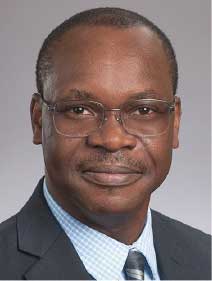
Olatunji B. Alese, MD
Associate Professor, Department of Hematology and Medical Oncology
Emory University School of Medicine
Director of Gastrointestinal Oncology
Winship Cancer Institute of Emory University, Atlanta, GA
Dr. Alese, MD, is an associate professor in the Department of Hematology and Medical Oncology at Emory University School of Medicine. Dr. Alese received his MD from University of Ibadan, Nigeria in 2000. His postgraduate medical education included residency training at University College Hospital in Nigeria and New York Medical College - Metropolitan Hospital Center. He completed his fellowship in hematology/oncology at Winship Cancer Institute of Emory University. He also serves as director of gastrointestinal oncology and is a member of the Discovery and Developmental Therapeutics Research Program at Winship Cancer Institute. He previously served on the Advisory Group of ASCO International Affairs Committee, and he is a member of several professional organizations.

Najeeb Al Hallak, MD, MS
Associate Professor (Clinical), School of Medicine Department of Oncology Division of Hematology Oncology (Primary)’ Detroit, MI
Dr. Najeeb Al Hallak is a GI Medical Oncologist at the Karmanos Cancer Institute located in Detroit, MI.He is the Co-Leader of the Gastrointestinal and Neuroendocrine Oncology Multidisciplinary Team and member of the Phase 1 Therapeutics Program. Dr. Al Hallak actively serves as the EMR Physician Champion, is a member of the Clinical Leadership Council, Medical Executive Committee and Data Safety Monitoring Committee, and is the Program Director for the Annual Gastrointestinal Oncology Symposium at KCI. As Associate Professor in the Department of Oncology at the Wayne State University School of Medicine, Dr. Al Hallak’s dedication to teaching students at all levels of their education is remarkable, and in 2023 he was honored to receive both the Physician Scientist-Research Excellence Award and College Teaching Award. Dr. Al Hallak’s research focus is Gastrointestinal Malignancies, specifically Pancreatic Cancer. The goal of his research work is to better understand the molecular biology and microenvironment of GI cancers, discover new treatments, and prevent treatment-induced toxicities. Dr. Al Hallak translates his passion for improving treatment outcomes for GI cancer patients by conducting Clinical Trials (phase I-III) and is currently the Principal Investigator on many active trials. He works through translational research to identify new biomarkers that help to individualize the treatment choice for his patients and provide them with an accurate prediction of the treatment effect as well as a prognosis of their cancer.

Lowell B. Anthony, MD, FACP
Professor, Clinical Title Series Division of Medical Oncology University of Kentucky Medical Centre, Lexington, KY
Dr. Lowell B. Anthony, MD, FACP is professor and Division Chief of Medical Oncology in the Department of Medicine at the University of Kentucky, Lexington, KY, and a member of theNCI-designated Markey Cancer Center which has a Top 50 ranking by the U.S. News and World Report. He received his undergraduate degree from King College, Bristol, Tennessee and hismedical and postgraduate training in internal medicine, medical oncology and clinicalpharmacology at Vanderbilt University Medical Center in Nashville, Tennessee. Prior to joiningthe University of Kentucky, he was a Professor of Medicine at LSUHSC in New Orleans. Dr. Anthony is board certified in Internal Medicine and Medical Oncology, and a Fellow of the American College of Physicians. Dr. Anthony maintains a busy clinical practice and research program. He has over 3 decades of experience in conducting clinical trials that encompasses a wide variety of topics and formats, including investigator-initiated Phase I/II clinical trials as well participation in many Phase III registrational and cooperative group trials with results presented at national and international forums, and published in peer-reviewed journals. He has over 150 publication and is an active member of numerous professional medical societies including the American Society of Clinical Oncology, American Federation for Medical Research, American Association for Cancer Research, Southwest Oncology Group, Southern Society for Clinical Investigation, Multinational Association of Supportive Care in Cancer (MASCC) and he was a founding member of the North American Neuroendocrine Tumor Society (NANETS). He has served on FDA orphan drug grants and NIH SPORE grants reviews panels. His major professional interests are focused on the study and management of neuroendocrine tumors with a special focus on developing hepatic loco-regional tumor debulking protocols, radiopharmaceutical therapies, novel somatostatin congener formulations and overcoming drug resistance.
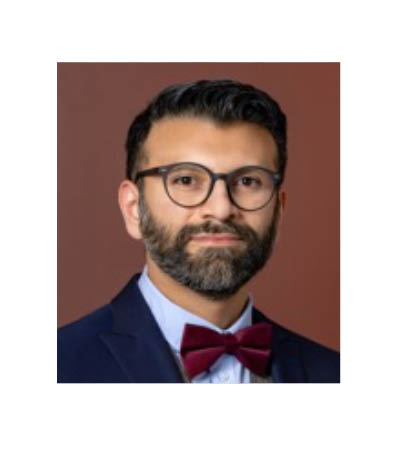
Junaid Arshad, MD, MS
Assistant Professor – Medical Oncology (Clinical Scholars Track) University of Arizona-College of Medicine, Tucson, AZ
Dr. Arshad is an Assistant Professor of Medicine and our new faculty member of GI Medical Oncology. He received his medical degree from King Edward Medical University, Lahore, Pakistan. He completed his Internal medicine Residency at St. Mary's Hospital, Waterbury, CT. He has joined the Cancer Center after his Hematology and Medical Oncology Fellowship from University of Miami, FL. Dr. Arshad is a Clinical and Translational Scientist with a focus on developing novel therapeutics for several areas of Upper GI Oncology. His clinical and research focus targets mainly the Upper GI Oncology including Gastrointestinal Stromal Tumors, Gastric Cancers, Esophageal Cancers and Neuroendocrine Tumors. He is a part of several clinical trials and has contributed to several peer reviewed publications. His prior research focuses on the use of biomarkers such as circulating tumor DNA (ctDNA) in the diagnosis, treatment and surveillance of Gastrointestinal Stromal Tumors. He has expanded his areas of research interest to include other disease modalities such as Neuroendocrine Cancers

Ali Azhdarinia, PhD
Associate Professor IMM-Center for Translational Cancer Research, The University of Texas, Health Science Center at Houston McGovern Medical School, Houston, TX
Dr. Azhdarinia is an associate professor working at UT Health Houston, McGovern Medical School. His research interest lies at the interface of chemistry and biology and is focused on the development of targeted agents for the visualization and treatment of disease. Using novel chemistry platforms, his laboratory produces contrast agents with radioactive and near-infrared fluorescent (NIRF) labels for whole-body and intraoperative imaging, respectively. They also utilize molecular targeting strategies to develop theranostic molecules for image-guided drug delivery. Radioisotopes, such as Gallium-68 and Copper-64, are routinely used in his laboratory to label peptides, proteins, and antibody-based agents and enable pharmacological characterization.
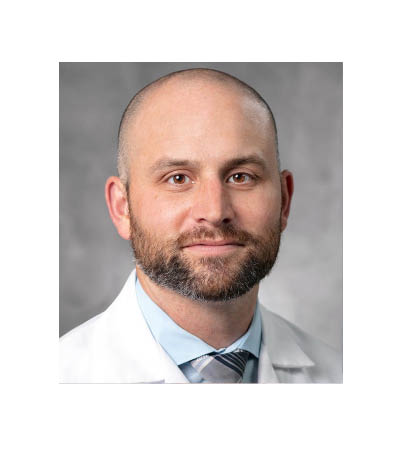
Gregory Botta, MD, PhD
Associate Professor of Medicine, UC San Diego School of Medicine, San Diego, CA
Dr. Botta is a medical oncologist who specializes in treating solid tumor cancers of the gastrointestinal system, including cancers of the digestive system, esophagus, stomach, gallbladder, pancreas, liver, small intestine, colon, appendix, rectum and anus, and gastrointestinal stromal tumors (GIST). He has expertise in chemotherapy, immunotherapy, molecular-based therapy, genomic profiling and regenerative approaches to treating malignancies. An active researcher and associate professor at UC San Diego School of Medicine, he is working on developing new methods for delivering drugs and immunotherapies. He is also interested in regenerating organs damaged by cancer. His research has a special focus on improving outcomes for pancreatic cancer. Prior to joining UC San Diego Health, Dr. Botta was a cancer researcher at The Scripps Research Institute and Sanford Burnham Prebys Medical Discovery Institute. Dr. Botta was a postdoctoral scientist at University of Pennsylvania, Perelman School of Medicine. He completed fellowship training in gastrointestinal oncology at Scripps MD Anderson Cancer Center in San Diego and residency training in internal medicine at Scripps Green in San Diego. He earned his medical degree and doctorate in molecular and cell biology from Drexel University College of Medicine in Philadelphia. Dr. Botta is a member of many professional societies, including the American Society of Clinical Oncology, the Society for Immunotherapy of Cancer and the American Association for Cancer Research. He is a Lindau Nobel Laureate fellow after presenting at the 2011 meeting and continues in an advisory role for future meetings.

Sakti Chakrabarti, MD
Clinical Associate Professor, Case Western Reserve University, School of Medicine Senior Attending Physician, Medical Oncology UH Seidman Cancer Center Cleveland, OH
Dr. Chakrabarti graduated from Calcutta Medical College and completed an Internal Medicine residency at the All India Institute of Medical Sciences in New Delhi, India. Upon relocating to the United States, he pursued another residency program in Internal Medicine at the University of Connecticut and, subsequently, a fellowship in Hematology-Oncology at the National Institutes of Health (Bethesda, Maryland). He sought further specialization in GI Oncology and completed an advanced fellowship at the Mayo Clinic in Rochester, Minnesota. His clinical and research interests focus on GI cancers, specifically colorectal, upper GI, and biliary cancers.
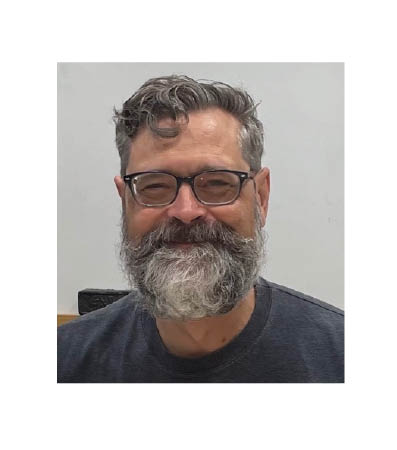
Christopher Counter, PhD
George Barth Geller, Distinguished Professor, Department of Pharmacology & Cancer Biology, Duke University, Adjunct Professor, Duke-NUS Medical School, Associate Director of Basic Research, Duke Cancer Institute, Durham, NC
Dr. Counter studies the molecular mechanisms underlying the process by which normal human cells become tumorigenic. His early work identified one of the hallmarks of human cancer, immortalization, whereby cancer cells overcome the normal loss of chromosome ends by reactivation of the enzyme telomerase. Based on this discovery, he helped reconstruct cancer from normal cells using a defined set of genes. As the first change to initiate this process is a mutation in the proto-oncogene RAS, much of his studies have since focused on how this initiation mutation arises to inform cancer early detection, interception, and prevention strategies. Dr. Counter has published over 100 papers in the field, his work is highly cited, and he has served in many capacities for the National Cancer Institute. Dr. Counter is the George Barth Geller Distinguished Professor in the Department of Pharmacology & Cancer Biology at Duke University, Adjunct Professor in the Duke-NUS Medical School, and Associate Director of Basic Research in the Duke Cancer Institute. After completing his bachelor’s degree and PhD from McMaster University (Canada), he finished his postdoctoral fellow from Massachusetts Institute of Technology. The Counter lab studies the molecular mechanisms underlying the evolution of normal cells into cancer.

Aman Chauhan, MD
Associate Professor of Medicine (Pending Approval) Director of Neuroendocrine Cancer Program Co-Director of Radiopharmaceutical Drug Development Program Sylvester Comprehensive Cancer Center University of Miami, Miami, FL
Aman Chauhan, MD, earned his medical degree from the Kasturba Medical College in Manipal, Karnataka, India, followed by a dual residency in internal medicine and pediatrics at Louisiana State University in New Orleans. Dr. Chauhan completed his fellowship in hematology and oncology at the University of Kentucky, especially focusing on neuroendocrine tumor (NETs). Additionally, Dr. Chauhan completed a Cancer Therapy Evaluation Program (CTEP) physician externship at the National Cancer institute (NCI) that focused on designing clinical trials and clinical research projects. His clinical interests include treating NETs, including carcinoid tumors, high-grade neuroendocrine carcinomas, and small and large cell neuroendocrine carcinoma. Dr Chauhan leads the University of Miami Neuroendocrine Cancer Program and co-leads Sylvester Theranostics Drug Development Program. He is national principal investigator on several investigator initiated neuroendocrine cancer clinical trials. He has authored over 70 scientific publications and book chapters and has received career development award from NCI CTEP. Dr Chauhan also serves on AJCC and ASCO NET guideline committees and is an active member of NANETS communication committee. Dr. Chauhan is board certified in internal medicine and medical oncology. He is a member of the American Society of Clinical Oncology as well as the American Association of Cancer Research and the North American Neuroendocrine Tumor Society.

Sant P. Chawla, MD
Director, Sarcoma Oncology Center Santa, Monica, CA
Dr. Chawla is the Director of Sarcoma Oncology Center in Santa Monica, CA, where he leads clinical cancer research efforts and conducts groundbreaking clinical research in pancreatic carcinoma, gynecologic tumors, breast cancer, glioblastoma, malignant peripheral nerve sheath tumors, lung cancer, and gastrointestinal tumors. Dr. Chawla graduated from the All-India Institute of Medical Sciences, New Delhi, with a dual degree in medicine and surgery, and completed residency in internal medicine, at the Postgraduate Institute of Medical Sciences, Chandigarh, India. Dr. Chawla completed a fellowship in medical oncology at the University of Texas, MD Anderson Cancer Center in Houston. Dr. Chawla's commitment to research has yielded significant results. He has conducted over 60 clinical trials, many of which have led to FDA and EMA approval of new cancer drugs. These include medications like carboplatin, trabectedin, pazopanib, eribulin, aprepitant, and denosumab, all playing a crucial role in the fight against cancer. Most recently, Dr. Chawla's leadership at the Sarcoma Oncology Center led to a breakthrough Phase II trial for Aldoxorubicin. This trial demonstrated significantly increased progression-free and overall survival rates without cardiotoxicity, a major improvement over traditional anthracyclines.

Ana De Jesus-Acosta, MD
Associate Professor of Oncology, Sidney Kimmel Cancer Center of Johns Hopkins Johns Hopkins Hospital, Baltimore, MD
Dr. Jesus-Acosta, MD is an Associate Professor of Oncology at the Sidney Kimmel Cancer Center of Johns Hopkins. Dr. De Jesus specializes in treating gastrointestinal malignancies with a specific focus in pancreatic cancer. Her clinical research interests are developing new treatments for localized or advanced pancreatic cancer. Dr. De Jesus leads translational clinical trials testing novel therapies and hedgehog inhibitors in this disease. Her studies are evaluating how these agents may target the pancreatic cancer stem cells, tumor microenvironment and affect the intratumor drug delivery in patients with pancreatic cancer. Dr. De Jesus also investigates mechanisms of resistance in pancreatic cancer.

Haley Ellis, MD
Medical Oncologist, Massachusetts General Hospital, Boston, MA
Dr. Ellis works as a medical oncologist at Massachusetts General Hospital, specializing in bile duct neoplasms; biliary tract neoplasms; cholangiocarcinoma; gallbladder neoplasms; translational research and clinical trials. She received her medical degree from University College Dublin. She then completed her internship from Washington University, Barnes-Jewish Hospital and residency at Brigham and Women's Hospital, Dana Farber Cancer Institute and Mass General Hospital.
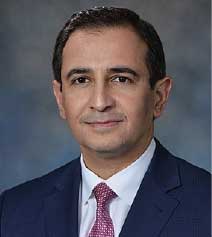
Hashem B. El-Serag, MD, MPH
Vice President – Learning Health System, Margaret M. and Albert B. Alkek Professor and Chair, Department of Medicine Baylor College of Medicine
Houston, TX
Dr. El-Serag joined the Michael E. DeBakey VA Medical Center and Baylor College of Medicine in Houston, Texas in 1999, where he later became Chief of the Baylor College of Medicine Section of Gastroenterology and Hepatology (2007-2016) in the Department of Medicine. He received his M.D. with Honors from Al-Arab Medical University in Benghazi, Libya in 1991. He then moved to the United States, where he performed his residency in internal medicine at Yale University Greenwich Hospital and received a gastroenterology fellowship in clinical gastroenterology at the University of New Mexico, before earning his Master of Public Health from the University of New Mexico in 1998. His research focusses on hepatocellular carcinoma, where he has published more than 300 scholarly papers on the subject. His research also focuses on the clinical epidemiology and outcomes of several digestive disorders, including Barrett’s esophagus, esophageal adenocarcinoma and hepatitis C. He has obtained more than 60 funded research grants, including those from the National Institutes of Health, the Cancer Prevention and Research Institute of Texas, the VA and professional societies Dr. El-Serag also has become a leading expert on chronic liver disease and gastroesophageal reflux disease.
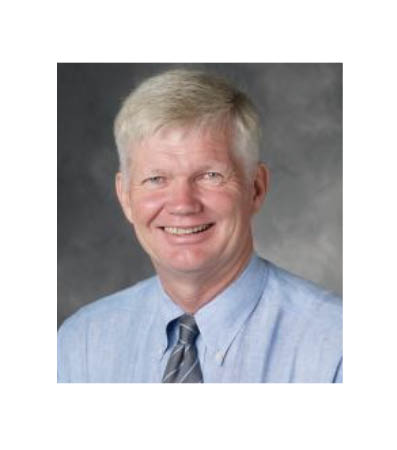
George A. Fisher Jr, MD, PhD
Professor Stanford University, Stanford, CA
Dr. Fisher conducts a clinical research on a variety of gastrointestinal cancers and provide care for patients with those cancers. He has trials of combined modality therapy (surgery +/- radiation +/- chemotherapy) on gastric, esophageal, pancreas and rectal cancers. He has also performed phase I and II trials of biologically targeted agents as well as newer immunotherapeutics. In collaboration with a number of colleagues, he conducts a translational studies analyzing novel imaging (e.g. contrast enhanced ultrasound and perfusion scans) and molecular biomarkers (e.g. CDX2 as a prognostic and predictive factor in colon cancer and matrix metalloproteinases as prognostic factors in pancreas cancer). Neuroendocrine tumors, pancreas, colorectal and gastro-esophageal cancers have been areas of particular research focus with multiple therapeutic and translational studies devote to each. Examples of recently completed trials include a randomized phase III trial of a vaccine (algenpantucel) for resected pancreas cancer, phase Ib trial of anti-PD-L1 and separate phase II trials using PD-1 antibody for tumors with micro satellite instability and chemotherapy with angiogenesis inhibitors for advanced neuroendocrine tumors and gastro-esophageal adenocarcinomas. Currently active areas of study include combining immunomodulating antibodies in combination therapy and randomized phase II colon cancer trials of an antibody to interleukin 1 or a first in class agent known as RadioRx. Participation and leadership in NCI cooperative group protocols gives our patients access to the randomized trials that hope to establish new standards of care for a variety of GI cancers.

Pierre M. Gholam, MD AGAF, FAASLD
Professor of Medicine, Case Western Reserve University School of Medicine, Medical Director, Liver Center of Excellence, University Hospitals of Cleveland Distinguished Attending Physician, UH Cleveland Medical Center, Director, Hepatobiliary Multidisciplinary Disease Team, UH Seidman Cancer Center, Cleveland, OH
Dr. Pierre Gholam directs the NCI-designated Case Comprehensive Cancer Center Multidisciplinary Hepatobiliary Tumor Board where cases of benign and malignant liver lesions including HCC and cholangiocarcinoma are discussed in a collaborative manner and consensus recommendations for a plan of care or referral to appropriate clinical trials are made. Dr. Gholam also directs the UH Liver Disease Center. The center’s research portfolio is diverse and ranges from NIH/NIAAA-funded research on the natural history of alcoholic liver disease and alcoholic hepatitis to investigation of first line, second line and adjuvant therapies for HCC to novel treatments for HBV infection and complications of portal hypertension. The current research focus is on investigating novel treatments for NAFLD. The team is conducting phase 1/3 clinical trials with extensive first-in-human and early phase expertise at the NIH-funded Dahms Clinical Research Unit. In clinical practice, Dr. Gholam dedicates a significant part of his effort to caring for persons who need or receive a liver transplant. He treats complications of portal hypertension and advanced liver disease. He also have a special interest in rare liver diseases with significant unmet need such as the Porphyrias, inherited cholestatic disorders and glycogen storage diseases.
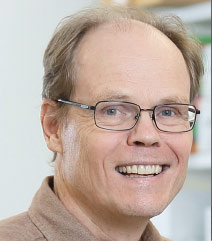
Tim F. Greten, MD
Deputy Director, Center for Cancer Research, Deputy Branch Chief & Senior Investigator, Thoracic and GI Malignancies Branch, Co-Director NCI CCR Liver Cancer Program Center for Cancer Research, National Cancer Institute,
Bethesda, MD
Dr. Greten is a physician-scientist who uses his medical expertise in Gastroenterology, Hepatology and Medical Oncology along with his research expertise in tumor immunology to develop novel treatments for patients with cancer. He heads a research team to study the tumor microenvironment in the liver in the context of Hepatocellular Carcinoma, Cholangiocarcinoma, and liver metastasis and studies how exogenous factors such as diet and the gut microbiome may affect immune responses in the liver. He also directs the GI Medical Oncology clinical team, that conducts clinical trials in patients with GI cancers. He and his team cover the entire research spectrum from basic tumor immunology and use of complex murine cancer models to the development and evaluation of new immunotherapies (including CAR T cells) for patients with gastrointestinal cancers. He conducts investigator-initiated first-in-human trials, phase I and II trials and has been one of the first investigators to test immune checkpoint inhibitors in patients with Hepatocellular carcinoma and Cholangiocarcinoma either alone or in combination with locoregional therapies.
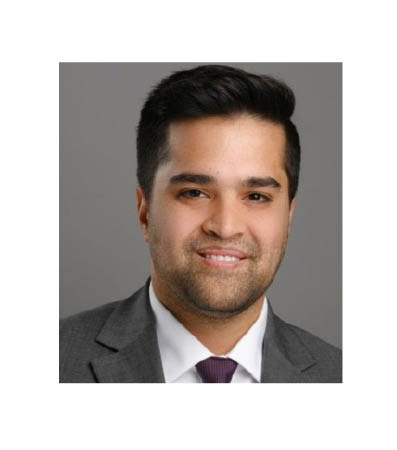
Saurav Daniel Haldar, MD
Assistant Professor, Department of Gastrointestinal (GI) Medical Oncology
The University of Texas MD Anderson Cancer Center, Houston, TX
Dr. Haldar is an Assistant Professor in the Department of Gastrointestinal Medical Oncology at the University of Texas MD Anderson Cancer Center with a clinical practice focused on pancreatic and colorectal cancer. Dr. Haldar graduated magna cum laude from Harvard College with a joint A.B./A.M. degree in Chemistry and Chemical Biology in 2013 and received his M.D. degree with honors from the Harvard-MIT Health Sciences and Technology Program at Harvard Medical School in 2018. His graduate research focused on the biology of immunomodulatory drugs (iMiDs) in the laboratory of Dr. Benjamin L. Ebert at the Dana-Farber Cancer Institute. He received his internal medicine training at the Osler Medical Residency Program and completed his fellowship in Medical Oncology at Johns Hopkins in 2024. Dr. Haldar is the recipient of several research awards for his work, including the ASCO-Conquer Cancer Foundation Young Investigator Award, Hopper-Belmont Foundation Inspiration Award, and an NIH/NCI Loan Repayment Award. In addition, he was selected to participate in the 2023 ASCO-AACR Methods in Clinical Cancer Research Workshop and the 2023-24 FDA-AACR Oncology Education Fellowship. During his fellowship, Dr. Haldar led multiple investigator-initiated clinical trials and translational studies of an off-the-shelf mutant KRAS vaccine in patients with pancreatic and colorectal cancer under the mentorship of Drs. Nilofer S. Azad and Elizabeth M. Jaffee at Johns Hopkins. As a clinical/translational investigator, Dr. Haldar’s active research interests include the development of neoantigen vaccines, combinatorial immunotherapies, and KRAS-directed therapies for the treatment and early interception of gastrointestinal malignancies.
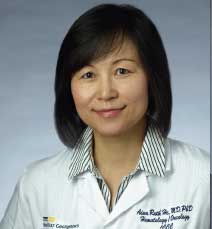
Aiwu Ruth He, MD, PhD
Associate Professor, Division of Hematology/Oncology, Department of Medicine School of Medicine, Georgetown University, Washington, DC
Dr. He is an GI medical oncologist, working at Lombardi Comprehensive Cancer, Georgetown University Hospital. Her research interests are on hepatocellular carcinoma, cholangiocarcinoma. She is a clinical investigator of many clinical trials evaluating new therapeutics for advanced HCC and cholangiocarcinoma.

Gregory M. Heestand, MD
Clinical Associate Professor – GI Oncology Associate Fellowship
Director – Hematology/Oncology Stanford University, Stanford, CA
Dr. Heestand is a board-certified medical oncologist with a focus on gastrointestinal cancers, primarily hepatocellular carcinoma, cholangiocarcinoma, and gallbladder cancer. He serves as the medical oncology champion of the Stanford Hepatobiliary Tumor Board, as well as the principal investigator of multiple clinical trials. He collaborates with campus laboratories to help develop new biomarker and treatment technologies. He is the associate director of the Stanford Hematology Oncology Fellowship Program. Outside of the clinic, Dr. Heestand enjoys playing the piano, teaching his kids about music, cooking for friends and family, and surfing the internet for interesting things to read.
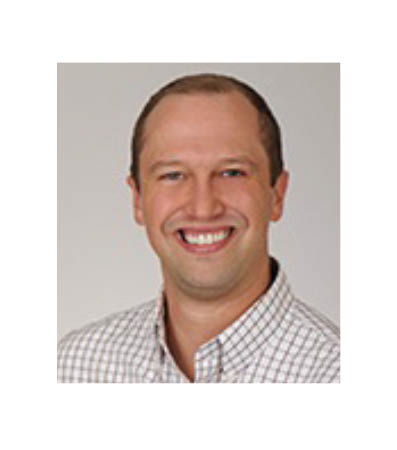
Aaron Hobbs, PhD
Assistant Professor Department of Cell and Molecular Pharmacology & Experimental Therapeutics Medical University of South Carolina, Charleston, SC
Dr. Hobbs currently serve as an Assistant Professor in the Department of Cell and Molecular Pharmacology and Experimental Therapeutics at MUSC. He received his PhD in Biochemistry and Biophysics from the University of North Carolina at Chapel Hill. He continued his studies at UNC-Chapel Hill by completing a postdoctoral fellowship in KRAS-mutant cancer signaling under the mentorship of Dr. Channing Der at the Lineberger Comprehensive Cancer Center. He joined the MUSC faculty in August of 2020. His postdoctoral research centered on the question of whether all KRAS mutant proteins were created equal, thereby challenging the long-standing dogma in the RAS and cancer research fields.

Howard S. Hochster, MD, FACP
CINJ Associate Director, Clinical Research, Director Clinical Oncology Research, RWJ-B Health System Rutgers Cancer Institute, New Brunswick, NJ
Dr. Hochster is an I am currently the Associate Director for Clinical Research and Director, Gastrointestinal (GI) Oncology, at CINJ and Director of Oncology Research for RWJBarnabas Health. He oversees clinical research efforts at The Rutgers Cancer Institute and across the many hospitals of RWJBarnabas Health. After graduating from the Yale School of Medicine, he completed an internship, residency and fellowship in Hematology-Oncology at Bellevue Hospital and the NYU Medical Center. He is certified in Internal Medicine by the American Board of Internal Medicine, and by the Hematology and Oncology Boards. Since 1986, he was on the NYU faculty in medical oncology, rising to full professor before moving to the Yale Cancer Center in 2010, where he was the Associate Director for Clinical Research and head of GI Oncology until joining Rutgers Cancer Institute. His clinical expertise and research interests are dedicated to early drug development and clinical pharmacology, focused on tumors of the gastrointestinal tract. He has led numerous clinical trials and have been at the forefront of clinical research in GI Oncology and have been instrumental in the approval of eight new drugs for the treatment of colon cancer. He has authored more than 150 peer-reviewed articles on cancer therapy, new drug development and clinical trials and have presented many of these study results at national meetings. He has two R01 funded research projects on cancer pharmacodynamics and was recently awarded a Lead Academic Participating Site Grant to support NCI sponsored clinical trials. He is involved with the NCI National Clinical Trials Network (NCTN) and have chaired ten phase 2 and phase 3 studies in the NCI cooperative groups. From 2013 -2018 I also was the GI Cancer Committee Chair for SWOG. Currently he leads CINJ participation in ECOG-ACRIN and serve one several committees.

Brandon Huffman, MD
Clinical Investigator, Hale Family Center For Pancreatic Cancer Research Department of Medical Oncology, Dana-Farber Cancer Institute Instructor in Medicine, Harvard Medical School, Boston, MA
Dr. Brandon Huffman is a medical oncologist in the Gastrointestinal Cancer Center at Dana- Farber Cancer Institute and a member of the faculty at Harvard Medical School. Dr. Huffman received his undergraduate and medical degrees from the University of Missouri. He trained in Internal Medicine at Mayo Clinic in Rochester, Minnesota where he also served as a chief medical resident. He completed his fellowship in Medical Oncology at the Dana-Farber Cancer Institute where he also served as a chief fellow. Dr. Huffman is a junior clinical investigator who is developing and leading clinical trials investigating experimental therapeutics in pancreatic cancer focusing on novel combinations targeting DNA repair and intracellular signaling along with understanding their mechanisms of sensitivity and resistance.
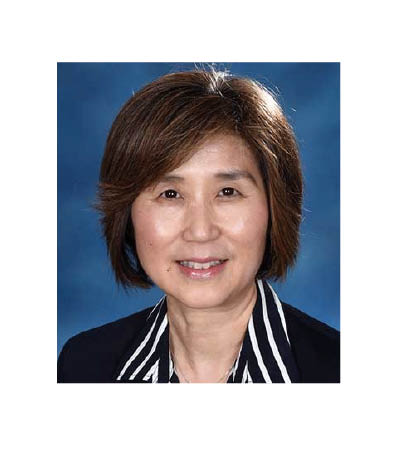
Yixing Jiang, BM, PhD
Professor of Medicine, Director, GI Medical Oncology Marlene and Stewart Greenebaum Cancer Center, University of Maryland School of Medicine, Baltimore, MD
Dr. Jiang is a Professor of Medicine and the Director of GI Medical Oncology at the Greenebaum Cancer Center, University of Maryland School of Medicine. Dr. Jiang earned her medical degree from Shanghai Medical College, Fudan University, and her Ph.D. from Mount Sinai School of Medicine. She completed her Medical Oncology training at the University of Texas MD Anderson Cancer Center. Her clinical interests focus on gastrointestinal malignancies, including gastroesophageal, pancreatic, hepatobiliary, and colorectal cancers. Her research primarily concentrates on three key areas: Early Drug Development: Dr. Jiang has collaborated with the National Cancer Institute (NCI), industry partners, and academic institutions to develop early-phase clinical trials. In partnership with the biotechnology industry, she successfully completed first-in-human studies for a novel nanotechnology-based drug delivery system, funded by the NCI. She also closely collaborates with faculty from other institutions within the University of Maryland System to develop and conduct trials using home-grown agents supported by federal funding. Identification of Predictive and Prognostic Markers: Dr. Jiang's research utilizes lipidomics to identify predictive and prognostic markers and potential new therapeutic targets in gastrointestinal malignancies. Her work includes a mass spectrometry-based lipidomic approach to quantify sphingolipid changes in human pancreatic cancer tissue and plasma specimens from patients with pancreatic cancer. Chemotherapy-Induced Peripheral Neuropathy: Dr. Jiang collaborates with investigators at the University of Maryland School of Nursing on patient-based studies funded by the NIH. These studies aim to develop programs for preventing chemotherapy- induced peripheral neuropathy. Cellular Therapy in Solid Tumors: Collaborating with investigators at University of Maryland and outside academic institutions, Dr. Jiang is actively involved in dendritic-cell based cancer vaccine development and TCR-T cellular therapy in rare GI malignancies.

Suneel Kamath, MD
Assistant Professor of Medicine Cleveland Clinic Lerner College of Medicine Case Western Reserve University, Cleveland, OH
Dr. Kamath is a medical oncologist specializing in gastrointestinal cancers. He is a staff physician in the Department of Hematology and Oncology at Cleveland Clinic Taussig Cancer Institute and an Assistant Professor of Medicine at the Cleveland Clinic Lerner College of Medicine of Case Western Reserve University. Dr. Kamath earned his medical degree from Columbia University College of Physicians & Surgeons. He completed his internal medicine residency, along with his fellowship in Hematology/Oncology at Northwestern University Feinberg School of Medicine. Dr. Kamath has published in many medical journals, including JAMA, Cancer Discovery, Journal of Clinical Oncology, Journal of the National Comprehensive Cancer Network, Cancer Research and Journal of Clinical Investigation. Dr. Kamath is a member of the Center for Young-Onset Colorectal Cancer at Cleveland Clinic. He leads multiple studies investigating metabolomic and microbiome differences between early-onset and average-onset colorectal cancer. In addition to clinical trial development, his research also investigates health disparities and funding disparities within oncology to help increase awareness and funding support for underfunded cancers, which include gastrointestinal cancers. He has spoken in front of the U.S. Congress to advocate for more equitable research funding across cancers
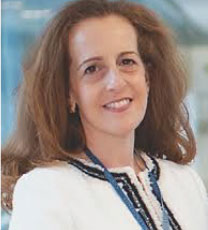
Fay Kastrinos, MD, MPH
Associate Professor of Medicine Division of Digestive and Liver Diseases Director, Gastrointestinal Cancer Risk and Prevention Program Director, Muzzi Mirza Pancreatic Cancer Prevention and Genetics Program Columbia University Irving Medical Center New York Presbyterian Hospital, New York, NY
Dr. Kastrinos is a clinical gastroenterologist with interests related to the genetics, screening, and primary prevention of gastrointestinal tumors, primarily colorectal and pancreatic cancer. She has expertise in the genetic evaluation of patients at risk for hereditary gastrointestinal cancer syndromes and directs a multi-disciplinary specialty clinic at the Herbert Irving Comprehensive Cancer Center, Columbia University Irving Medical Center, for genetic risk assessment and cancer prevention in familial gastrointestinal syndromes. She has expertise in clinical cancer genetics, statistical methodology involving the genetic epidemiology of cancer predisposition syndromes, development of prediction models, and analyses of large databases. Her research focus complements her clinical interests and involves optimizing the identification of patients with inherited cancer syndromes and promoting existing and testing novel cancer screening and prevention strategies. She has led large-scale studies, multiple national and international collaborations in developing tools to improve genetic risk assessment for inherited colorectal and pancreatic cancers and developing guidelines for optimal surveillance strategies for individuals at high risk for these cancers. She serves as site-PI at Columbia University for the (i) Cancer of the Pancreas Screening (CAPS) multicenter consortium (U01); (ii) Circulating Biomarker Consortium for the Early Detection of Pancreatic Cancer (U01); (iii) international prospective clinical trial for the validation of a novel biomarker for the early diagnosis of pancreatic cancer in high-risk individuals with familial pancreatic cancer (Immunovia-PanFAM1).

Bryson W. Katona, MD, PhD
Assistant Professor of Medicine, Division of Gastroenterology and Hepatology, University of Pennsylvania, Philadelphia, PA
Bryson Katona, MD, PhD is an Assistant Professor of Medicine in the Division of Gastroenterology and Hepatology at the University of Pennsylvania Perelman School of Medicine in the United States, where he serves as the Director of the Gastrointestinal Cancer Genetics Program and Director of the Gastrointestinal Cancer Risk Evaluation Program, and he also is a member of the Cancer Control Program of the Abramson Cancer Center. Bryson is a physician-scientist who is an expert in gastrointestinal cancer genetics, and his research program focuses on the diagnosis, risk assessment, management, and biology of hereditary gastrointestinal cancer predisposition syndromes. Bryson is currently President of the CGA-IGC has been a member of the CGA-IGC Council for the last 4 years. Bryson also sits on national committees for the AGA, ASCO, NCCN, NANETS, and PRECEDE.
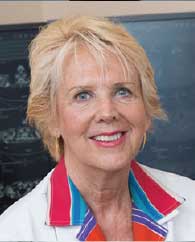
Nancy E. Kemeny, MD
Professor, Memorial Sloan Kettering Cancer Center, New York, NY
Dr. Nancy Kemeny specializes in Medical Oncology, with a special focus on Colon Cancer, Rectal Cancer and Liver Cancer. She practices primarily in New York, NY, and is affiliated with Memorial Sloan Kettering Cancer Center. Dr. Kemeny graduated from University of Medicine and Dentistry of New Jersey - New Jersey Medical School, Newark in 1971, and completed her training at St Luke’s-Roosevelt Hosp Ctr and Mem Sloan Kettering Cancer Ctr. She is board certified in Internal Medicine and Medical Oncology.

Alok Khorana, MD
Professor of Medicine, Cleveland Clinic Lerner College of Medicine of Case Western Reserve University, Director of the Gastrointestinal Cancers Program, Taussig Cancer Institute, Cleveland Clinic, Cleveland, OH
Alok A. Khorana, M.D., F.A.C.P, F.A.S.C.O, is Professor of Medicine, Cleveland Clinic Lerner College of Medicine, Case Western Reserve University, the Sondra and Stephen Hardis Chair in Oncology Research, Vice-Chair for Academic Development of the Taussig Cancer Institute (part of Case Comprehensive Cancer Center) and Director of the Gastrointestinal Malignancies Program at the Cleveland Clinic, Cleveland, Ohio. His clinical and translational research program focuses on predictive factors and drug development in cancer-associated thrombosis and gastrointestinal cancers and has been funded by grants from the National Cancer Institute, the National Heart, Lung, and Blood Institute, the Hardis Family, the Porter Family Fund, VeloSano, the Cleveland Clinic Center for Excellence, the Scott Hamilton CARES Initiative, Stand Up To Cancer (Colorectal Cancer “Dream Team”) and the V Foundation. Dr. Khorana received his medical degree from Maharaja Sayajirao University’s Medical College in Baroda (now Vadodara, Gujarat), India. His postdoctoral training included a residency in internal medicine at the University at Buffalo in New York and a fellowship in hematology/oncology at the University of Rochester, New York. He is a Fellow of the American College of Physicians and in 2018 was elected Fellow of the American Society of Clinical Oncology. Dr. Khorana is Past Chair of the American Society of Clinical Oncology (ASCO) Clinical Practice Guidelines Panel (CPGC), Chair of ASCO CPGC’s Pancreas Cancer Working Group, Co-Chair of ASCO CPGC’s Multisite Advisory Group and Co-Chair of the ASCO Guidelines Panel on Resectable Pancreas Cancer. He is currently Chair of the Medical and Scientific Advisory Board of the National Blood Clot Alliance. In 2019, Dr. Khorana was awarded the Cleveland Clinic’s Maria and Sam Miller Professional Excellence Award for Scientific Achievement in Clinical Research.

Moh’d Khushman, MD
Associate Professor of Medicine, GI Medical Oncologist, Division of Medical Oncology, Department of Medicine Washington University in St. Louis, Siteman Cancer Center, St. Louis, MO
Dr. Khushman is an associate professor of medicine (division of hematology and oncology) at Washington University in St. Louis/Siteman Cancer Center. He is board certified in internal medicine, Medical Oncology and Hematology but he specializes in the treatment of gastrointestinal malignancies. He is a member of the American Society of Clinical Oncology (ASCO), AACR and SITC. He serves as the co-leader of the Developmental Therapeutics Oncology Focus Group and the chair of molecular tumor board. His research interest focuses on molecular profiling of GI malignancies and biomarkers discovery.
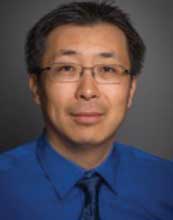
Richard Kim, MD
Professor, Moffitt Cancer Center, Tampa, FL
Dr. Kim is a Service Chief of Medical Gastrointestinal Oncology and Senior Member in the Gastrointestinal Oncology Department at Moffitt Cancer Center. He is a Professor of Oncology at the University of South Florida College of Medicine. Dr. Kim received his medical degree from the University of Miami School of Medicine and completed a residency in internal medicine at the University of Illinois at Chicago. He pursued a postdoctoral fellowship in hematology and medical oncology at Yale University Comprehensive Cancer Center in New Haven, CT. Before coming to Moffitt in 2010, Dr. Kim was an associate physician in gastrointestinal malignancies at the Cleveland Clinic Taussig Cancer Center and a clinical assistant professor at the Cleveland Clinic Lerner College of Medicine of Case Western Reserve University in Cleveland, OH. Dr. Kim was named 2008 Teacher of the Year at the Cleveland Clinic and selected for the 2008 Southwest Oncology Group Young Investigator Program and SWOG’s Intergroup Colon Task Force for junior faculty. Dr. Kim’s clinical and research interests focus on gastrointestinal tumors, in particular hepatobiliary and colon cancer. He is a principal investigator in multiple investigator-initiated and pharmaceutical phase I, II , III trials using immunotherapy and novel targeted agents. Dr. Kim has published in many peer reviewed journals including Lancet Oncology, British Journal of Cancer, JAMA Oncology, Clinical Cancer of Research, Cancer and Journal of Clinical Oncology along with many book chapters. He has been an ad hoc editorial reviewer for many professional journals, including Journal of Clinical oncology, Annals of Oncology, Cancer and Lancet Oncology. Dr Kim has spoken at over 50 national and international events, most recently ASCO Direct Highlights, the annual meeting of the Florida Academic Cancer Center Alliance, and the Spring Managed Care Forum in Orlando, FL.
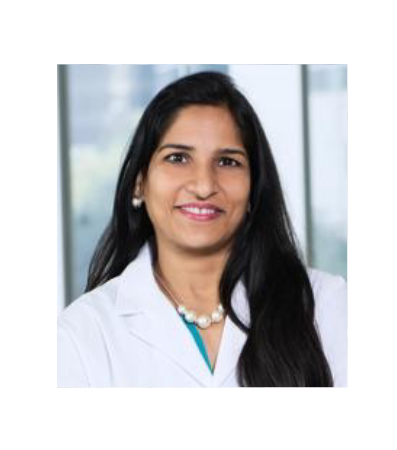
Sudha Kodali, MD
Associate professor of Clinical Medicine Department of Medicine Division of Gastroenterology, Hepatology Section Houston Methodist Hospital, Houston, TX
Dr. Sudha Kodali obtained her medical degree from India and completed her residency training in Internal Medicine in Texas followed by fellowship in Gastroenterology and Hepatology at University of Alabama in Birmingham, a master’s degree in Clinical and Translational Science from the UAB School of Public Health during her fellowship training period. She completed additional training in transplant hepatology and joined faculty as an assistant professor in the department of Gastroenterology and Hepatology at University of Alabama at Birmingham until September of 2018 and then joined Houston Methodist hospital. Dr. Kodali is currently an Associate Professor of Clinical Medicine at Houston Methodist Academic Institute and Adjunct Associate Professor of Medicine at Texas A & M University. She is also the medical Director of the Liver Tumor Program at J.C. Walters Transplant Center and the chairperson of the DEI at Methodist Transplant Institute. Her clinical and research interests include fatty liver disease, hepatocellular carcinoma and cholangiocarcinoma.

Smitha Krishnamurthi, MD
Associate Professor Department of Medicine, Division of Hematology and Oncology School of Medicine Member Developmental Therapeutics Program Case Comprehensive Cancer Center, Cleveland Clinic, Cleveland, OH
Dr. Krishnamurthi is an Associate Professor of Medicine at Cleveland Clinic based in Westlake, Ohio. She has been working previously, as a Medical Director, Clinical Research Office at Case Comprehensive Cancer Center at University Hospitals Ahuja Medical Center and also held positions at Optum Health Education, Lily Bella Salon and Spa. She received a BA degree from Western Reserve College and a MD from University of Pennsylvania, Her specialization lies in treating patients with Colon Cancer and Colorectal Cancer.
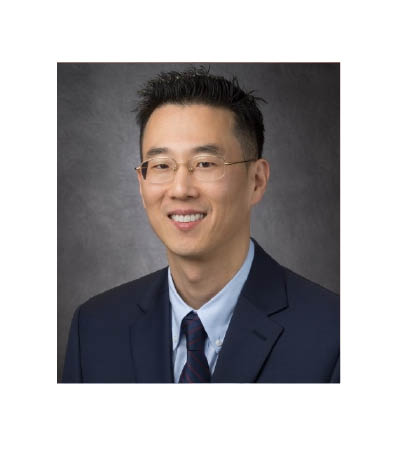
Sunyoung S. Lee, MD, PhD
Assistant Professor, Department of Gastrointestinal (GI) Medical Oncology
The University of Texas MD Anderson Cancer Center, Houston, TX
Dr. Sunyoung Lee is a gastrointestinal medical oncologist and clinical faculty in the Department of Gastrointestinal Medical Oncology at the University of Texas MD Anderson Cancer Center. Dr. Lee and his team have achieved recognition, ranking in the top 1% for their excellent patient care and communication, as highlighted by CG-CAHPS. His clinical practice and research are devoted to hepatobiliary tumors, encompassing both liver cancers (including hepatocellular carcinoma and fibrolamellar liver cancer) and biliary tract cancers (encompassing bile duct and gallbladder cancers). As an investigator and co-investigator of clinical trials and research studies, Dr. Lee has contributed to advancements in the understanding and treatment of liver and biliary tract cancers. He is a primary author of the MD Anderson Manual of Medical Oncology, specifically on topics related to hepatocellular carcinoma and biliary tract cancers. A physician-scientist with expertise in genomic and imaging analyses and biological physics, Dr. Lee has authored and presented over 100 journal articles, abstracts, and presentations in the field of oncology.
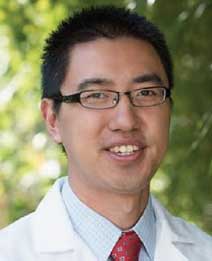
Daneng Li, MD
Associate Professor
Co-Director, City of Hope Liver Cancer Collaborative, Co-Director Neuroendocrine Tumor Program, Department of Medical Oncology & Therapeutics Research
City of Hope, Duarte, CA
Dr. Daneng Li is an associate professor in the department of medical oncology at City of Hope Comprehensive Cancer Center in Los Angeles, California. He currently serves as both co-director of the liver cancer collaborative and the neuroendocrine tumor program at City of Hope. He earned his undergraduate degree from The Ohio State University in Columbus, Ohio, graduating summa cum laude. He then went on to receive his medical doctorate from Weill Cornell Medical College in New York, before pursuing an internship and residency in internal medicine at New York-Presbyterian Hospital/Weill Cornell Medical Center. He then completed a hematology/oncology fellowship at Memorial Sloan-Kettering Cancer Center in New York City. Dr. Li’s clinical and academic research is focused on the multidisciplinary approach to the treatment of patients with hepatobiliary and neuroendocrine tumors including development of novel therapeutics and incorporation of patient assessment tools to improve patient care in those diagnosed with gastrointestinal malignancies. He has presented his research both nationally and internationally.
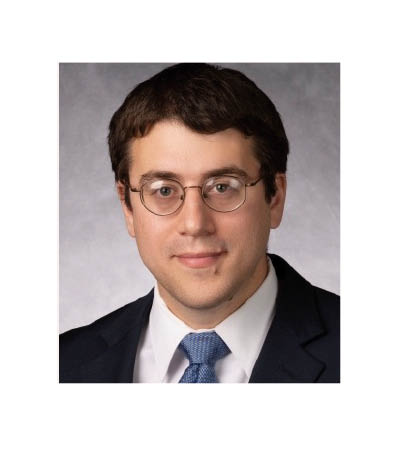
Ethan B. Ludmir, MD
Assistant Professor Department of Gastrointestinal Radiation Oncology Division of Radiation Oncology The University of Texas MD Anderson Cancer Center, Houston, TX
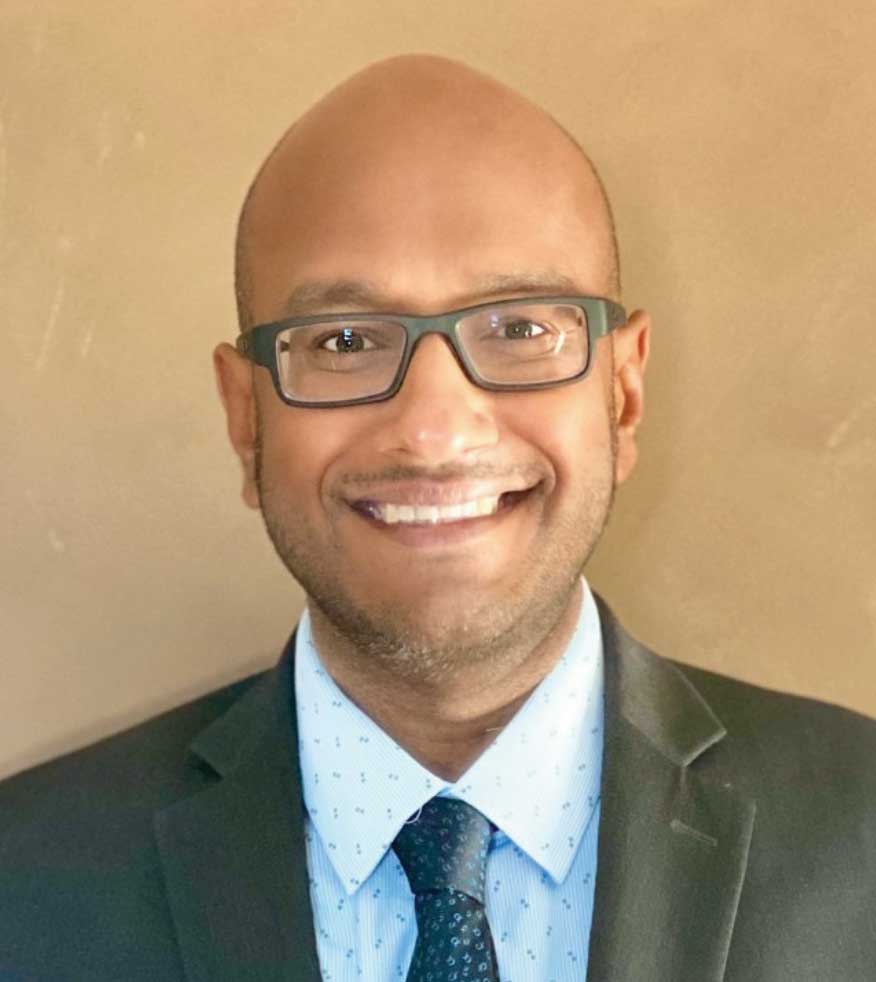
Amit Mahipal, MBBS, MPH
Professor, Case Western Reserve University, GI Oncology Program, Leader, UH SEIDMAN CANCER CENTER, Cleveland, OH
Dr. Mahipal, MBBS, MPH, is a Professor of Medicine at Case Western Reserve University and Director of GI oncology program at UH Seidman Cancer Center. Prior to joining University Hospitals in August 2022, he worked as a Professor of Oncology at Mayo Clinic, Rochester where he led the efforts in hepatobiliary cancers. He completed his MPH degree at the University of Minnesota, Minneapolis; his residency at the University of Connecticut Health Center, Farmington; and his hematology/oncology fellowship at Thomas Jefferson University Hospital, Philadelphia, PA. His research focuses on the development of novel therapeutic agents and biomarkers for gastrointestinal cancers, and he has spearheaded several investigator-initiated trials for pancreatic, liver, and bile duct cancers. In addition, he is involved in developing different markers that could potentially be utilized in developing personalized therapies in the field of oncology.
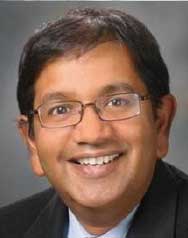
Anirban Maitra, M.B.B.S.
Professor of Pathology & Translational Molecular Pathology, Sheikh Khalifa Bin Zayed Al Nahyan Distinguished University
Chair in Cancer Research, Scientific Director, Sheikh Ahmed Center for Pancreatic Cancer Research, The University of Texas MD Anderson Cancer Center,
Houston, TX
Dr. Anirban Maitra is Professor of Pathology and Translational Molecular Pathology, Sheikh Khalifa Bin Zayed Al Nahyan Distinguished University Chair, and Scientific Director of the Sheikh Ahmed Center for Pancreatic Cancer Research at the University of Texas MD Anderson Cancer Center in Houston, Texas. He is an expert in pancreatic cancer, a disease that is the most lethal of all solid cancers and where he has made seminal contributions in understanding the molecular alterations that underlie cancer initiation and progression. His laboratory has made important strides in the application of liquid biopsy for longitudinal monitoring of pancreatic cancer patients, in particular, demonstrating the value of circulating exosomes in therapeutic stratification and monitoring for disease recurrence.
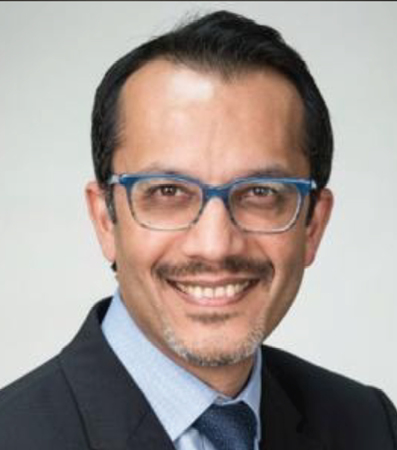
Gulam A. Manji, MD
Director of Pancreas Medical Oncology, Assistant Professor, Division of Hematology and Oncology, Columbia University-New York, Presbyterian Hospital, New York, NY
Dr. Manji, is an Assistant Professor of Medicine at Columbia University Medical Center. Dr. Manji received his M.D. degree from Ross University School of Medicine in 2009 and completed his residency in internal medicine at Albany Medical College. He then completed his fellowship in Hematology/Oncology at NewYork-Presbyterian/Columbia, where his clinical focus was on the treatment of gastrointestinal malignancies, melanoma, and sarcoma under the mentorship of Dr. Gary Schwartz, Chief of Hematology and Oncology. Dr. Manji conducts translational research with the overall goal to developing new treatments for cancer. His focus is in gastrointestinal malignancies, particularly pancreas adenocarcinoma, on which he is conducting preclinical combination immunotherapy studies on genetically engineered mice with pancreas cancer in the Olive laboratory at the Herbert Irving Comprehensive Cancer Center. The combination immunotherapy preclinical proposal received the Young Investigator Award from the American Society of Clinical Oncology-2015. The goal of these preclinical studies is to bring promising new therapies to the clinic in an early phase clinical trials Dr. Manji's research career in identifying new genes and their implication in disease has led to numerous key publications and an issued patent. Dr. Manji cares for patients with gastrointestinal malignancies, with a particular focus on pancreatic and liver cancers, and sarcomas. He is the principal investigator of an investigator-initiated multicenter clinical trial that he wrote with Dr. Gary Schwartz in sarcoma and malignant peripheral nerve sheath tumors and is responsible for clinical trials conducted in liver, bile duct, gallbladder, and pancreas cancers at Columbia University Medical Center.

Boris Naraev, MD, PhD, FACP
Gastrointestinal, Neuroendocrine and Endocrine Medical Oncologist, Tampa General Hospital Cancer Institute, Associate Professor of Medicine, Division of Hematology and Medical Oncology, University of South Florida, Morsani, College of Medicine, Tampa, FL
Dr. Naraev is a gastrointestinal, endocrine, and neuroendocrine medical oncologist with The Tampa General Hospital Cancer Institute. He is an Associate Professor of Medicine at The University of South Florida Morsani College of Medicine in Tampa, Florida. Prior to joining the TGH Cancer Institute, he was the Lead of Neuroendocrine Cancer Program at Banner MD Anderson Cancer Center in Phoenix, Arizona and Adjunct Assistant Professor with the Department of Gastrointestinal Medical Oncology at The University of Texas MD Anderson Cancer Center in Houston, Texas. While in Phoenix, he helped create, develop, and lead one of the largest neuroendocrine cancer programs in the Southwestern United States, and was personally taking care of a large population of patients with neuroendocrine tumors. Later, he served as the Leader of Gastrointestinal, Neuroendocrine, and Rare Cancers Program at the Anderson Family Cancer Institute at Jupiter Medical Center in Jupiter, Florida. In this capacity, he helped build the National Pancreas Foundation Pancreatic Cancer Center of Excellence at Jupiter Medical Center. He received his Doctor of Medicine degree from Orenburg State Medical Academy in Orenburg, Russia. Subsequently, he obtained PhD in Medical Sciences degree from the same institution. After completion of Internal Medicine residency training at St. Luke's Hospital in Chesterfield, Missouri, he proceeded to complete Hematology/Oncology Fellowship at the University of Iowa Hospitals and Clinics in Iowa City, Iowa. During his fellowship training, he developed a special interest in neuroendocrine tumors and completed several research projects in this field. Dr. Naraev is involved in neuroendocrine and GI tumors related research and community outreach and is a member of the Guidelines Committee and Patient Advocacy Committee of the North American Neuroendocrine Tumor Society.
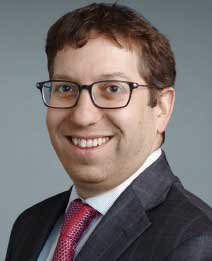
Paul E. Oberstein, MD
Director, Gastrointestinal Medical Oncology Program
NYU Langone Health, New York, NY
Dr. Oberstein focuses on cancers of the gastrointestinal tract, he treats people with various types of cancer, including stomach, pancreatic, colorectal, bile duct, and liver cancers. He works as the assistant director of the Pancreatic Cancer Center, part of NYU Langone’s Perlmutter Cancer Center, where they focus exclusively on research and treatment for people who have pancreatic cancer. His treatments are research-driven and he has participated in many clinical trials with the hope of providing our patients with newer and better treatment options, such as immunotherapy and novel chemotherapy combinations, along with better supportive and nutritional care. His research focus is on translational research, which means we collaborate with scientists who have made novel discoveries and help translate these discoveries into new treatments. He is also a member of the American Society of Clinical Oncology (ASCO) and the American Association for Cancer Research and recipient of an ASCO Young Investigator Award for my work in clinical trials and a KL2 Career Development Award from the National Cancer Institute.
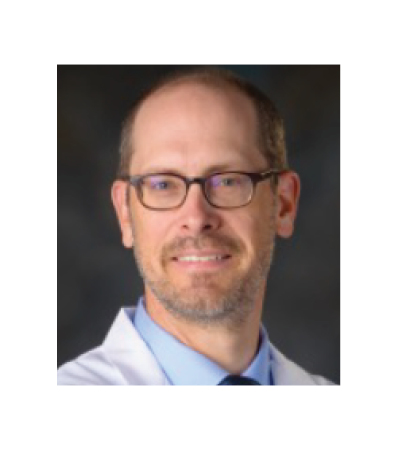
Michael J. Overman, MD
Professor, The University of Texas MD Anderson Cancer Center, Houston, TX
Dr. Overman is the Associate Vice President of Research for the MD Anderson Cancer Network. In addition Dr. Overman is a clinical researcher focused upon intestinal cancers and upon the optimal conduct of clinical trials. Dr. Overman has lead a number of innovative clinical trials, especially exploring the activity of immunotherapy for colorectal cancer. He is a clinical trialist and translational research focused upon pancreatic and intestinal cancers. He has an extended focus on the rare tumor type of small bowel adenocarcinoma he is also the principal investigator on a number of clinical trials investigating immune-checkpoint therapy in gastrointestinal malignancies.
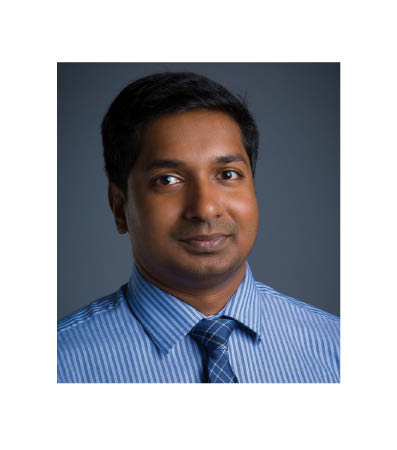
Ravi Kumar Paluri, MD
Associate Professor GI Oncologist, Div. of Hematology-Oncology, Dept. of Medicine Director, Phase 1 program The Atrium Health, Wake Forest Baptist, Winston-Salem, NC
Dr. Paluri is a Board-certified Oncologist and Hematologist. Currently, he works as an associate professor of Medicine and Co- Director of Phase 1 program at Atrium Health Wake Forest Baptist. He received his medical degree from Kakatiya Medical College. He completed his residency in internal medicine from University of Alabama at Birmingham and fellowship in hematology and oncology from University of Alabama at Birmingham. As Gastro-intestinal (GI) medical Oncology his clinical expertise is in providing care for patients receiving both standards of care and research treatments, as part of clinical trials, with a focus on gastrointestinal malignancies at the Atrium Health Wake Forest Baptist Health, an NCI, designated Comprehensive Cancer Center. As a clinical investigator, his research is focused on optimizing treatment selection and improving the outcomes of adults with Gastro-Intestinal cancers (esophageal, gastric, pancreas, bile duct, liver, small bowel, colorectal and anal cancers) with active involvement in Clinical trial designs, translational studies, and retrospective studies related to Gastrointestinal Malignancies. My clinical trial portfolio includes investigator- initiated trials, cooperative group trials, and industry-sponsored treatment studies. He has published over 50 articles on this topic and collaborated locally and nationally. Importantly, he is dedicated to providing unparalleled care to his patients by addressing all their needs giving time they need, and treating both patients and caregivers with compassion.
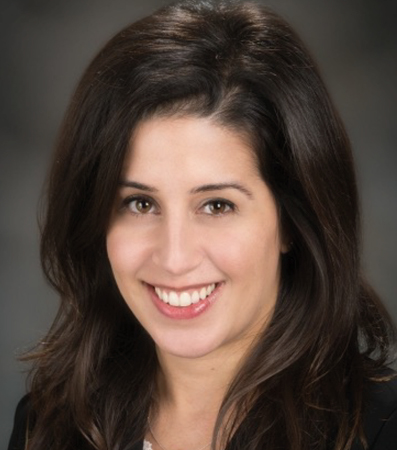
Christine M. Parseghian, MD
Associate Professor, Department of Gastrointestinal (GI) Medical Oncology, Division of Medicine The University of Texas MD Anderson Cancer Center, Houston, TX
Christine Parseghian, M.D. is an Associate Professor of Gastrointestinal Medical Oncology at the University of Texas MD Anderson Cancer Center. Dr. Parseghian received her Bachelor of Arts in Neurobiology from Harvard University, and her M.D. from Tufts University School of Medicine. She completed her residency in Internal Medicine at the University of California in Los Angeles and her fellowship in Hematology and Oncology at the MD Anderson Cancer Center. Dr. Parseghian is a clinician scientist focusing on understanding the molecular determinants of response or resistance to anti-cancer therapies for colorectal cancer and she is the principal Investigator of multiple clinical trials in this space. She is also studying new ways to utilize liquid biopsy, and specifically, analysis of circulating tumor DNA, in her trials to prognosticate response to targeted therapies such as anti-EGFR agents in RAS/RAF wildtype colorectal cancer.
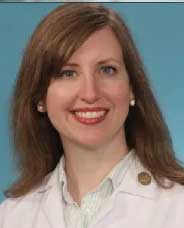
Katrina Pedersen, MD
Associate Professor of Medicine, Division of Medical Oncology, Mayo Clinic Rochester, MN
Dr. Pedersen works as an Associate Professor specializing in small bowel adenocarcinoma, colon cancer, rectal cancer, young-adult colorectal cancer, anal cancer, and appendiceal carcinomas. After completing her medical degree from Southern Illinois University School of Medicine, she finished her residency and fellowship at Mayo Clinic, Rochester. She held faculty appointments at Washington University School of Medicine in St. Louis prior to transitioning to faculty at Mayo Clinic, Rochester. She leads the SBA Guideline Subcommittee for NCCN, is U.S. Chair of the International Rare Cancer Initiative for SBA research, developed the YO-CRC program as Med Onc Director at Washington University School of Medicine in St. Louis, and is actively involved in clinical development of numerous compounds for colorectal and other GI cancers.
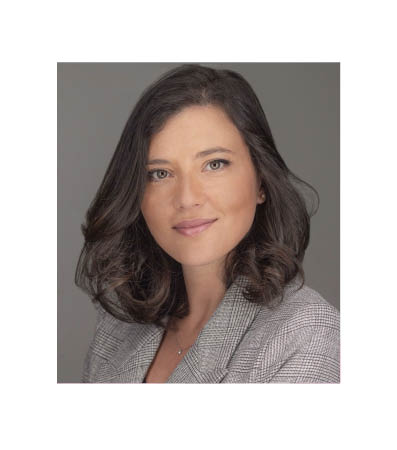
Eleonora Pelle, MD
Post Doctoral Researcher, Department of GI Oncology, Clinical Science Lab H. Lee Moffitt Cancer Center & Research Institute, Tampa, FL
Dr. Pelle is a Medical Oncologist specializing in the management of neuroendocrine tumors (NETs). She graduated from the University of Milan and completed her fellowship in Medical Oncology at the University of Bari. During her training, Dr. Pelle focused on managing patients with NETs and actively participated as a sub-investigator in clinical studies such as the ASPEN and SENECA studies. She also engaged in preclinical research aimed at understanding the biology of these rare tumors and developing innovative adoptive cell therapies. In 2021, Dr. Pelle joined the Moffitt Cancer Center as a postdoctoral fellow under the mentorship of Dr. Jonathan Strosberg. At Moffitt, she has developed expertise in the management of NET patients through her involvement in Dr. Strosberg’s clinic. Her clinical work has concentrated on emerging aspects of Peptide Receptor Radionuclide Therapy (PRRT) and managing its side effects in NET patients. In 2022, Dr. Pelle was awarded the NANETS Basic/Translational Science Investigator Award (BTSI), which supported her research on developing a novel anti-SSTR bispecific T-cell engager (BiTE)-like molecule for the treatment of NETs. In 2024, she received the research instructor designation at the Moffitt Cancer Center and also joined the NIH as a guest researcher for a few weeks, under the supervision of Dr. Jaydira Del Rivero. Dr. Pelle has authored multiple scientific papers in high-impact journals and presented her research at national and international conferences. She is a member of major neuroendocrine-oriented associations, including the European Neuroendocrine Tumor Society (ENETS) and the North American Neuroendocrine Tumor Society (NANETS), where she serves on the Scientific Review Committee.
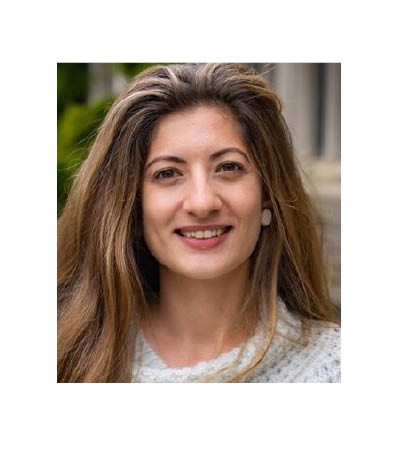
Yoanna S. Pumpalova, MD
Assistant Professor of Medicine Medical oncologist, Columbia University, Irving Medical Center, New York, NY
Dr. Yoanna Pumpalova is an Assistant Professor of Medicine and medical oncologist at Columbia University Irving Medical Center where she specializes in the treatment of gastrointestinal malignancies, with a focus on colorectal and anal cancers. She received her MD from Weill Cornell Medical College and completed internship and residency training in Internal Medicine and Global Health at Stanford University. She then completed fellowship training in Medical Oncology at Columbia University/New York Presbyterian Hospital. Dr. Pumpalova works as part of a multidisciplinary team with the mission of delivering compassionate and state-of-the-art oncologic care to each patient, using a precision medicine approach to provide innovative and promising treatments. Dr. Pumpalova is actively involved in translational research to understand the biological mechanisms driving early onset colorectal cancer. She collaborates with Dr. Joel Gabre, a gastroenterologist and clinician scientist and Dr. Beatrice Dionigi, colorectal surgeon, on research to understand how early onset colorectal cancer differs from average onset colorectal cancer, with the goal of uncovering novel ways to treat all patients with colorectal cancer. Dr. Pumpalova is also the site principal investigator of industry-sponsored clinical trials investigating novel therapies for the treatment of colorectal cancer. Further, Dr. Pumpalova conducts studies in low- and middle-income countries focused on early detection and screening for colorectal cancer. She has active studies in South Africa and Dominican Republic. Her research goal is to improve outcomes for patients diagnosed with colorectal cancer, regardless of where they reside. Her work has been recognized by several awards including an ASCO Young Investigator Award and ASCO Career Development Award.
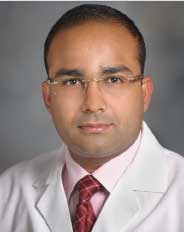
Kanwal Raghav, MD, MBBS
Associate Professor, Gastrointestinal Medical Oncology Center
Medical Director (CMD), Ambulatory Treatment Centers, The University of Texas MD Anderson Cancer Center, Houston, TX
Dr. Kanwal Raghav is an Associate Professor in the Department of Gastrointestinal Medical Oncology (GIMO) at MD Anderson Cancer Center, Houston, TX (MDACC). His clinical and research efforts center on patients with colorectal cancer (CRC) with emphasis on cancer genomics and developmental therapeutics. He joined GIMO after completion of my fellowship in Hematology/Oncology in 2013 and since have led many clinical trials (targeted therapy and combined targeted and immune therapy) as principal investigator (PI) and authored multiple publications on tumor biology, therapeutic resistance, and cancer biomarkers. His research focuses on biomarker-based cancer therapy and genomically-driven clinical trials. Complementing his clinical research efforts, is his translational work on identifying putative predictive biomarkers for EGFR antibodies (HER2 amplification) using next-generation sequencing and ctDNA assays. Using one of the largest cohorts of HER2 amplified metastatic CRC (mCRC) his group validated the HER2 amplification as a predictive biomarker in mCRC. He has been an investigator on many HER2 trials such as the MyPathway HER2 targeting (trastuzumab + pertuzumab) study in mCRC, S1613, an NCI-NCTN randomized trial of cetuximab plus irinotecan (CETIRI) vs. trastuzumab plus pertuzumab (TP) in patients with refractory HER2 amplified metastatic colorectal cancer, DESTINY-CRC01 and CRC02 studies, and MOUNTAINNER-03 trial with trastuzumab and tucatinib.
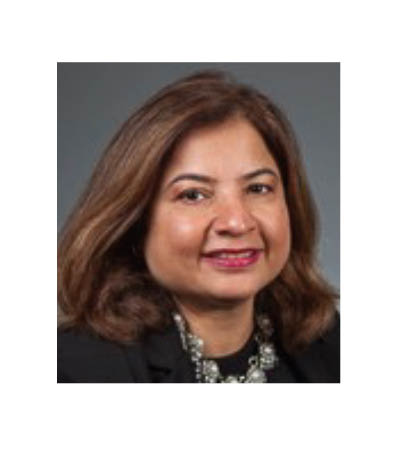
Lakshmi Rajdev, MD, MS
Professor of Medicine (Hematology and Medical Oncology) Icahn School of Medicine at Mount Sinai, New York, NY
Dr. Rajdev is a Professor of Medicine (Hematology and Medical Oncology) at the Icahn School of Medicine at Mount Sinai. She is the Medical Director of Oncology at Mount Sinai Morningside and Co-Chair of the RAE Committee Tisch Cancer Institute. Dr. Rajdev’s specialty is Gastrointestinal (GI) Oncology with particular expertise in gastroesophageal and anal carcinoma; and HIV-associated cancers. A nationally recognized investigator, Dr. Rajdev has chaired and co-chaired investigator-initiated and cooperative group studies. She serves on numerous scientific committees, including the Esophago-Gastric and Rectal Anal Task Force of the National Cancer Institute (NCI) GI Cancer Steering Committee and the NCI Adult Central Institutional Review Board Late Phase Emphasis Committee. She previously served as Chief of Hematology and Oncology at Lenox Hill Hospital and Director of GI Malignancies for the Western Region of the Northwell Health System.
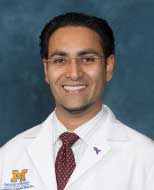
Vaibhav Sahai, MBBS, MS
Clinical Associate Professor, Department of Internal Medicine University of Michigan Medical School, Ann Arbor, MI
Dr. Vaibhav Sahai is an Associate Professor of Internal Medicine and Section Head of GI Oncology in the Division of Hematology and Oncology at the University of Michigan in Ann Arbor, Michigan. Dr. Sahai is a clinician-scientist who sees patients within the multidisciplinary pancreatic and liver tumor programs. As a clinical and translational investigator, he is the principal investigator on several investigator-initiated multi-institutional clinical trials open across the U.S. His translational research program leverages the pancreaticobiliary cancer biobanks that he directs for the therapeutic investigation of novel compounds in patient-derived cell lines and xenograft models to help develop novel phase 1/2 investigator-initiated clinical trials.
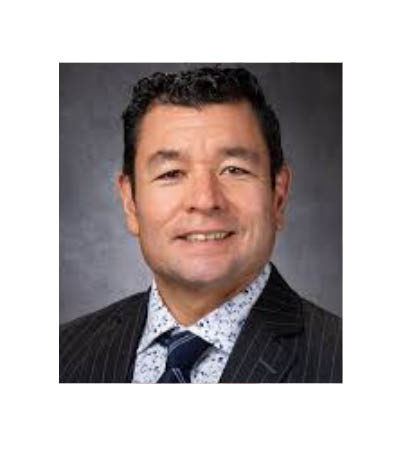
John Paul Y.C. Shen, MD
Assistant Professor, Department of Gastrointestinal Medical Oncology, The University of Texas MD Anderson Cancer Center, Houston, TX
Dr. Shen is a physician-scientist with a scientific background in chemical biology and clinical training in Internal Medicine, Hematology, and Oncology. He is currently an Assistant Professor in the Department of Gastrointestinal Medical Oncology at the University of Texas MD Anderson Cancer Center with a clinical practice focused on colon and appendix cancers. His long-term research goal is to better understand the cancer genome, and to leverage that understanding to better the delivery of chemotherapy. His immediate research goals include the discover of new synthetic lethal genetic relationships as a means to both repurpose already FDA approved drugs and also identify new chemotherapeutic drug targets. He is actively involved in several projects to identify genomic biomarkers to predict what specific patients will response to a given therapy. His research builds on my prior training in chemical biology and high-throughput screening, functional genomics and the creation of genetic interaction networks, as well as clinical oncology. After completing medical school at Washington University, he matched into a combined Internal Medicine residency and Hematology-Oncology fellowship program at UCSD as part of the Physician-Scientist pathway. During the research portion of my fellowship, he joined the laboratory of Dr. Trey Ideker, an internationally recognized leader in the field of network and systems biology. The Ideker lab specializes in utilizing knowledge of network relationships to draw biological conclusions from large datasets as well as performing high-throughput genetic interaction experiments in both human and model organism systems.
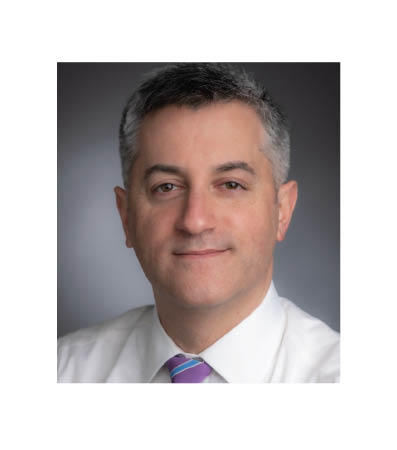
Benjamin L. Schlechter, MD
Senior Physician Instructor in Medicine, Harvard Medical School, Attending Physician, Medical Oncology, Dana-Farber Cancer Institute, Boston, MA
Dr. Schlechter is a medical oncologist who specializes in gastrointestinal cancers including colorectal cancer, anal cancer, pancreatic cancer, and neuroendocrine cancers, among others. He is a former intern, resident, chief resident and fellow at Beth Israel Deaconess Medical Center as well as a member of the faculty at Harvard Medical School. In the past he was the Director of Inpatient Hematology and Oncology at Beth Israel Deaconess Medical Center as well as the Assistant Program Director of the Internal Medicine Residency Program. He has previously worked in the laboratory of Dr. Carol L. Rosenberg at Boston University School of Medicine and Dr. Donald E. Ingber at the Wyss Institute. His work at Dana-Farber focuses on providing excellent patient care while trying to advance the treatment of gastrointestinal cancer patients.
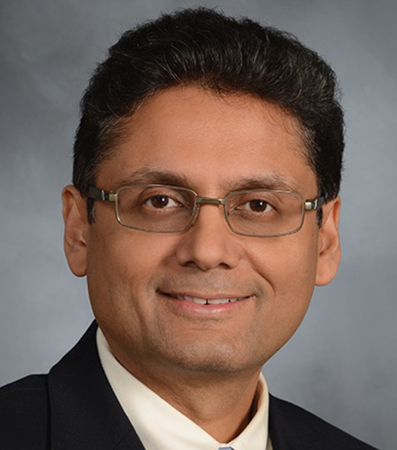
Manish A. Shah, MD
Director, Gastrointestinal Oncology Program, Weill Cornell Medicine Chief, Solid Tumor Service Co-Director, Center for Advanced Digestive Disease New York-Presbyterian, New York, NY
Dr. Shah graduated from Johns Hopkins University in 1991 with a Bachelor's of Science degree in Biomedical Engineering, and from Harvard Medical School/MIT Health Sciences and Technology program in 1996, graduating magna cum laude, with a Medical Doctorate degree. He completed his Internal Medicine Residency training at Duke University Medical Center in 1999, and his Medical Oncology Fellowship at Memorial Sloan-Kettering Cancer Center in 2001, also serving as Chief Oncology Fellow. He is the recipient of several awards including the American Society of Clinical Oncology Young Investigator and Career Development Awards. He was recruited from Memorial Sloan Kettering Cancer Center to Direct the Gastrointestinal Oncology Program within the Division of Hematology and Medical Oncology and the Center for Advanced Digestive Care at Weill Cornell Medical College / New York-Presbyterian Hospital. Dr. Shah is a national and international thought leader in drug development and the treatment of gastrointestinal malignancies. He is a distinguished peer-review funded investigator and has led several Phase I, II and III clinical trials in patients with advanced gastric cancer. Dr. Shah is also the Director of the Gastrointestinal Oncology Research Laboratory at Weill Cornell Medical College. His areas of translational research interests are in improving our understanding of cancers of the upper GI tract as well as hereditary gastrointestinal malignancies. He is interested in power of genomic evaluations of malignancy and how the environment and personal risks can impact the genetic causes of malignancy. He is a peer-reviewer for NIH and NCI research funding, and a reviewer for several high impact journals including the Journal of the American Medical Association, Journal of Clinical Oncology, Annals of Surgery, Annals of Surgical Oncology, Clinical Cancer Research and Gastroenterology. Dr. Shah is also the Editor for The Management of Complex Cases in Gastrointestinal Oncology Case Series for the Journal Of Gastrointestinal Oncology and the Series Editor for the Dx/RX: Oncology Series published by Jones and Bartlett Publishers. He has authored several books including Dx/Rx: Upper Gastrointestinal Malignancies: Cancers of the Stomach and Esophagus, as well as 100 Questions and Answers about Stomach Cancer. He is a member of the American Society of Clinical Oncology (serving as a Cancer Education Committee Member), American Association of Cancer Research, and the American Gastroenterology Association. In addition, Dr. Shah is Chair of the Scientific Advisory Board for the DeGregorio Family Foundation for Stomach and Esophageal Cancer Education and Research.

Shagufta Shaheen, MD
Clinical Assistant Professor, Department of Medicine, Division of Oncology Stanford University, Stanford, CA
Dr. Shaheen is a medical oncologist specializing in gastrointestinal malignancies, with a particular focus on neuroendocrine tumors (NETs). Following her fellowship in Hematology and Oncology, she pursued an advanced fellowship in Neuroendocrine Tumors at Stanford University. This pioneering fellowship, the first of its kind in the United States, was initiated by Dr. Pamela Kunz, the founding Director of the Stanford Neuroendocrine Tumor Program established in 2015. After completing her advanced fellowship, Dr. Shaheen joined the Stanford Oncology division as a Clinical Assistant Professor. In this role, she has continued to develop and expand the neuroendocrine oncology program, actively engaging in research and clinical trials focused on neuroendocrine tumors. In addition to her research contributions, Dr. Shaheen is deeply committed to promoting equity in both the workforce and patient care. She currently serves as the Associate Division Chief for Equity, Diversity, and Inclusion in the Division of Oncology at Stanford. Dr. Shaheen is also the Chair of the NANETS Diversity and Membership Committee, where she works to enhance diversity and inclusion within the field of neuroendocrine tumors.
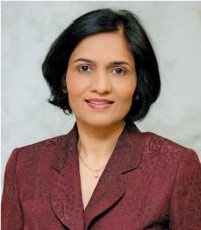
Kirti Shetty, MD
Professor of Medicine, Director, Hepatology
Medical Director, Liver Transplantation
Program Director, Transplant Hepatology Fellowship
University of Maryland Medical Center, Baltimore, MD
Dr. Shetty is a professor of medicine and is board-certified in gastroenterology and transplant hepatology. She was recruited to the University of Maryland to serve as Director of Hepatology and Medical Director of Liver Transplantation. She is also the Program Director for UMMC's ACGME-accredited transplant hepatology fellowship. She has broad clinical expertise, which includes viral hepatitis, non-alcoholic fatty liver disease, liver cancer and cirrhosis of the liver. She previously served as Director of Hepatology for the Johns Hopkins' National Capital Region program. While there she developed a specialized referral center for liver diseases in the Washington, DC region. Prior to that, she was Director of Transplant Hepatology at the Georgetown Transplant Institute, where she implemented the transplant hepatology service line as well as initiated and directed the Transplant Hepatology Fellowship program. The focus of Dr. Shetty's career is to combine excellence in clinical care with patient-based research and specialized medical education.
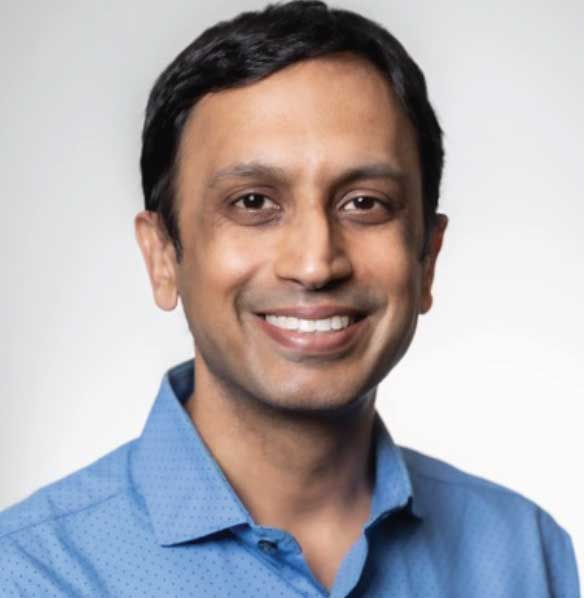
Amit Singal, MD, MS
Professor Department of Internal Medicine, Division of Digestive and Liver Diseases University of Texas Southwestern Medical Center, Dallas, TX,
Dr. Singal is a Professor of Medicine in the Division of Digestive and Liver Diseases at University of Texas Southwestern Medical Center and serves as Chief of Hepatology and Medical Director of the Liver Tumor Program. He has obtained NIH funding examining the hepatocellular carcinoma (HCC) care continuum, ranging from prevention and screening to treatment and survivorship. He has over 250 peer-reviewed original publications and has been awarded the Willis C Maddrey Distinguished Chair in Liver Disease, Dedman Family Scholar in Clinical Care, and Blue Faery Award for Excellence in Liver Cancer Research.
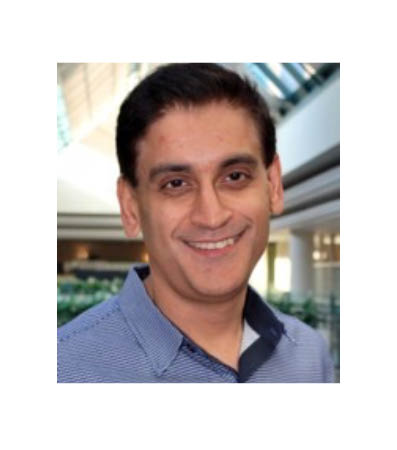
Simron Singh, MD, MPH
Professor, Department of Medicine, University of Toronto Provincial Head, Person Centered Care, Cancer Care, Ontario Medical Oncologist, Sunnybrook Odette Cancer Center/Susan Leslie Clinic for Neuroendocrine Cancers Scientist, Institute for Clinical Evaluative Sciences, Assistant Professor, Institute for Health Policy Management and Evaluation, Co-Founder, Commonwealth Neuroendocrine Tumour Collaboration, Ontario, Canada
Dr. Simron Singh is a medical oncologist and affiliate scientist in the Odette Cancer Research Program at Sunnybrook Research Institute. He is also an professor at the University of Toronto. He completed his B.Sc. and MD at the University of Alberta in Edmonton. He completed postgraduate training in internal medicine at Queen’s University in Kingston and medical oncology at U of T. After completing his clinical training, Dr. Singh completed his master's degree in public health from Harvard University in Boston, U.S.
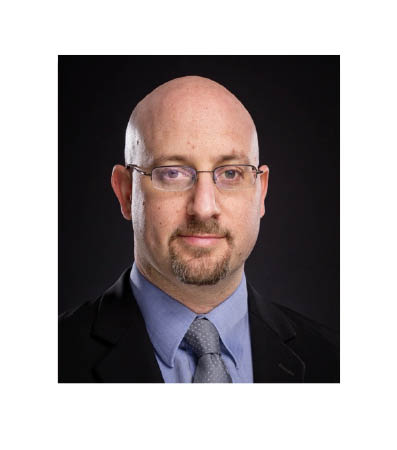
Jonathan Strosberg, MD
Professor, Department of Oncologic Sciences, MDC 44 College of Medicine University of South Florida, Medical Director, GI Research Program, President Emeritus North American Neuroendocrine Tumor Society, Moffitt Cancer Center Tampa, FL
Jonathan Strosberg, MD, is a professor in the Department of Gastrointestinal Oncology at the Moffitt Cancer Center in Tampa, FL, specializing in the management of neuroendocrine malignancies. He is also section head of the Neuroendocrine Tumor Division and chair of the Gastrointestinal Department Research Program at the Moffitt Cancer Center. He is a graduate of Harvard University and Weill Cornell Medicine. He completed his fellowship in medical oncology and hematology at the Moffitt Cancer Center. Dr Strosberg has published more than 200 articles and book chapters on the diagnosis and management of neuroendocrine malignancies, including first-author publications in The New England Journal of Medicine, the Journal of Clinical Oncology and The Lancet Oncology. He has also authored 13 articles for UpToDate. He has served as president of the North American Neuroendocrine Tumor Society, and he serves on the National Comprehensive Cancer Network Neuroendocrine Guidelines Committee and on the National Cancer Institute Neuroendocrine Tumor Task Force. Dr Strosberg also cochairs the Neuroendocrine Tumor Section of SWOG.

Nguyen H. Tran, MD
Assistant Professor of Oncology, Mayo Clinic, Rochester, MN
Dr. Tran, MD, MPH is an Assistant Professor of Oncology at the Mayo Clinic Rochester Minnesota. Dr. Tran has a strong interest in biomarkers discovery/assessment in hepatobiliary cancers, particularly in minority and underserved patients. She currently has several ongoing projects assessing novel imaging and blood-based biomarkers and leads both investigator-initiated and industry-sponsored clinical trials. Dr. Tran is a recipient of the NIH K23 award and is a Health Disparities Research Institute Scholar. She earned her undergraduate degree from the University of Michigan, Ann Arbor, Michigan and went on to receive her medical degree from Michigan State University. She then completed a hematology/oncology fellowship at University of Michigan Ann Arbor Michigan. Dr. Tran is excited to explore the role of biomarker in the treatment of hepatobiliary diseases, especially in minority patient population, as this is an area of large unmet need.
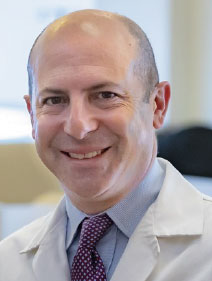
Zev A. Wainberg, MD
Professor of Medicine, Health Sciences, Clinical Professor of Medicine and Surgery Division of Hematology-Oncology, David Geffen School of Medicine at UCLA, Santa Monica, CA
Dr. Wainberg is the Professor of Medicine at UCLA and co-director of the UCLA GI Oncology Program. He was trained in medical oncology and hematology at UCLA. He completed his residency training at Albert Einstein College of Medicine and received his MD from the Sackler School of Medicine, New York Program at Tel Aviv University. His research involves a variety of clinical trials in multiple gastrointestinal cancers including pancreas, colon, gastric and esophageal. Dr. Wainberg's laboratory-based research efforts involve the testing of novel therapeutics against all gastrointestinal cancers. Currently, he is the recipient of several grants focused on the targeting of cancer stem cells and in molecular classification of GI cancers.
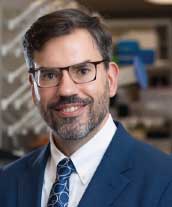
Kirk Wangensteen, MD, PhD
Associate Professor, Mayo Gastroenterology and Hepatology, Mayo Clinic, Rochester, MN
Dr. Wangensteen is working as an Associate Professor at Mayo Gastroenterology and Hepatology. He is a Physician-scientist and P.I. of the Wangensteen lab. After receiving his medical and postdoctoral degree from University of Minnesota Medical School he finished his gastroenterology fellowship from University of Pennsylvania. His research focuses on defining genetic factors involved in liver disease progression and the development of liver cancer. He specializes in genetics of gastrointestinal diseases such as hereditary cancer syndromes and inherited liver diseases. He works in unraveling the pathways that drive liver regenerative responses and tumor formation..
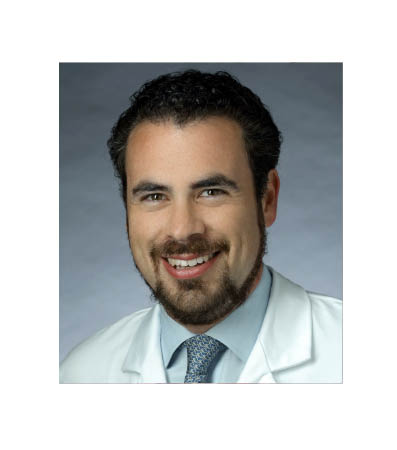
Benjamin Adam Weinberg, MD, FACP
Associate Professor of Medicine Department of Medicine, Division of Hematology and Oncology, Lombardi Comprehensive Cancer Center (LCCC), Georgetown University Medical Center, Washington, DC
Dr. Weinberg is an Associate Professor of Medicine and Attending Physician specializing in gastrointestinal medical oncology and sarcoma. Dr. Weinberg is focused on developing new therapies for colorectal and pancreatic cancers by translating research from animal models into early phase clinical trials in humans. He also studies young patients with colorectal cancer and their microbiome in order to understand the dramatic rise in incidence of left-sided colon and rectal cancers in this population. Dr. Weinberg obtained his undergraduate degree in biomedical science at the University of Pennsylvania in 2007 and his MD at the Keck School of Medicine of the University of Southern California in 2011. He completed his post-graduate medical training at MedStar Georgetown University Hospital with a residency in internal medicine in 2014 and a fellowship in hematology and oncology in 2017 where he served as the Chief Fellow from 2016 to 2017. Throughout his medical career, Dr. Weinberg has worked exhaustively to make sure that patients are heard and that they receive the highest quality of care. His training as a resident and fellow at Georgetown leads him in the pursuit of cura personalis (“care for the whole person”), and he brings this mindset every day into the clinic and all his work with patients.
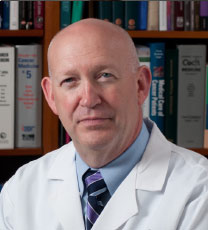
Robert A. Wolff, MD
Professor, Department of Gastrointestinal (GI) Medical Oncology, Division of Cancer Medicine, The University of Texas MD Anderson Cancer Center, Houston, TX
Dr. Wolff is the Sheikh Zayed bin Sultan Al Nahyan Distinguished University Chair in Medical Oncology and a Professor in the Department of GI Medical Oncology at MD Anderson Cancer Center. In addition, he serves as Deputy Division Head, Clinical and Educational Affairs in the Division of Cancer Medicine. Dr. Wolff graduated from Albany Medical College in Albany, New York and completed his residency and fellowship training in Hematology/Oncology at Duke University Medical Center. He joined the faculty of MD Anderson Cancer Center in 1997, where his research has focused on the treatment of pancreatic cancer and other GI malignancies. He has been a collaborator with surgical oncologists, radiation oncologists, and laboratory researchers in trying to understand the causes of pancreatic cancer and to design better treatment strategies for resectable, locally advanced, borderline resectable, and metastatic disease. Dr. Wolff is also known for his work in medical education, serving as Program Director of the MD Anderson Hematology/Oncology fellowship from 1999-2019. He has been recognized for his efforts with a Regents Outstanding Teacher Award from the University of Texas.

Jennifer Wu, MD
Director, Bellevue Cancer Center Section, Chief, Hematology Oncology Bellevue Medical Center, Associate Professor Of Medicine, NYU Langone Health, New York, NY
Dr. Wu works as an associate professor at Department of Medicine at NYU Grossman School of Medicine, Bellevue Cancer Center. After receiving her medical degree from Albert Einstein College of Medicine, she completed her fellowship in Hematology/Oncology from NYU Medical Center. Her clinical and research interest is gastrointestinal cancers, with a focus on liver and biliary cancer, pancreatic cancer, and gastric cancer. Currently, she is studying whether radiation therapy in combination with immunotherapy is an effective treatment for pancreatic cancer.
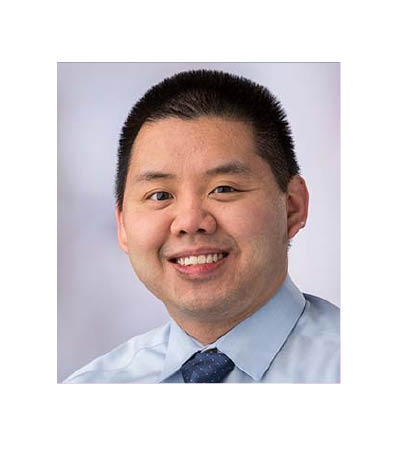
David B. Zhen, MD
Associate Professor, Gastrointestinal Medical Oncology, Co-director, Neuroendocrine Tumor Program, Fred Hutchinson Cancer Center, University of Washington, Seattle, WA
Dr. Zhen is an Associate Professor of Medicine at the Fred Hutchinson Cancer Research Center and University of Washington. He is a gastrointestinal medical oncologist and cares for patients with all gastrointestinal malignancies but has a specific clinical and research focus in neuroendocrine tumors and gastroesophageal cancers. He is the Co-Director of the Neuroendocrine Tumor Program and also oversees the research program for gastroesophageal cancers at his institution. His research is focused on identifying new therapies through clinical trials incorporating translational research with the goal of identifying biomarkers that better predict response and resistance to therapy, particularly related to immunotherapy. He is the national and local PI for investigator-initiated and industry-sponsored clinical trials in neuroendocrine and gastroesophageal cancers and serves on several national committees including being a panel member of the NCCN Neuroendocrine and Adrenal Guidelines, Early Career Member of the NCI Neuroendocrine Task Force, and serves other roles within SWOG and the NCI cooperative group system
Junior Faculty
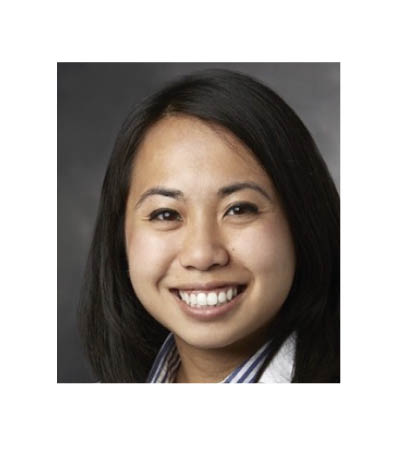
Pamela Basto, MD, PhD
Hematology/Oncology Fellow, Stanford University’, Stanford, CA
Dr. Basto is presently, pursuing fellowship in hematology/oncology at Stanford Medicine. She is working at the intersection of immunology and cancer genomics at Stanford. She graduated from Stanford University and completed her residency from the Mount Sinai hospital- Manhattan. Her graduate thesis was focused on developing platform technology for next generation nanoparticle vaccines at the intersection of immunology and chemical engineering; work which has been patented and translated into clinical trials. Her medical school training was focused on investigating mechanisms to strengthen endogenous and exogenous immune responses against solid tumor metastases. Pamela will pursue a career as a physician scientist, specializing in oncology with a focus on discovery of novel immune mechanisms against gastrointestinal malignancies.
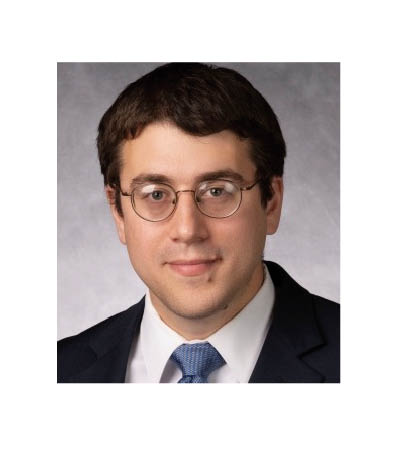
Ethan B. Ludmir, MD
Assistant Professor, Department of Gastrointestinal Radiation Oncology, Division of Radiation Oncology, Assistant Professor, Department of Biostatistics, Research Consultant, Department of Radiation Oncology - Research, Division of Radiation Oncology, The University of Texas MD Anderson Cancer Center, Houston, TX
Dr. Ludmir is an assistant professor at the Department of Gastrointestinal Radiation Oncology, Division of Radiation Oncology, MD Anderson Cancer Network, Houston, TX. He graduated from Duke University School of Medicine in 2015 and completed his residency in radiation oncology from the University of Texas MD Anderson Cancer Center. He is presently working on the phase II EXTEND trial to determine the effects of metastasis-directed therapy in combination with standard-of-care systemic therapy for oligometastatic pancreatic ductal adenocarcinoma.

